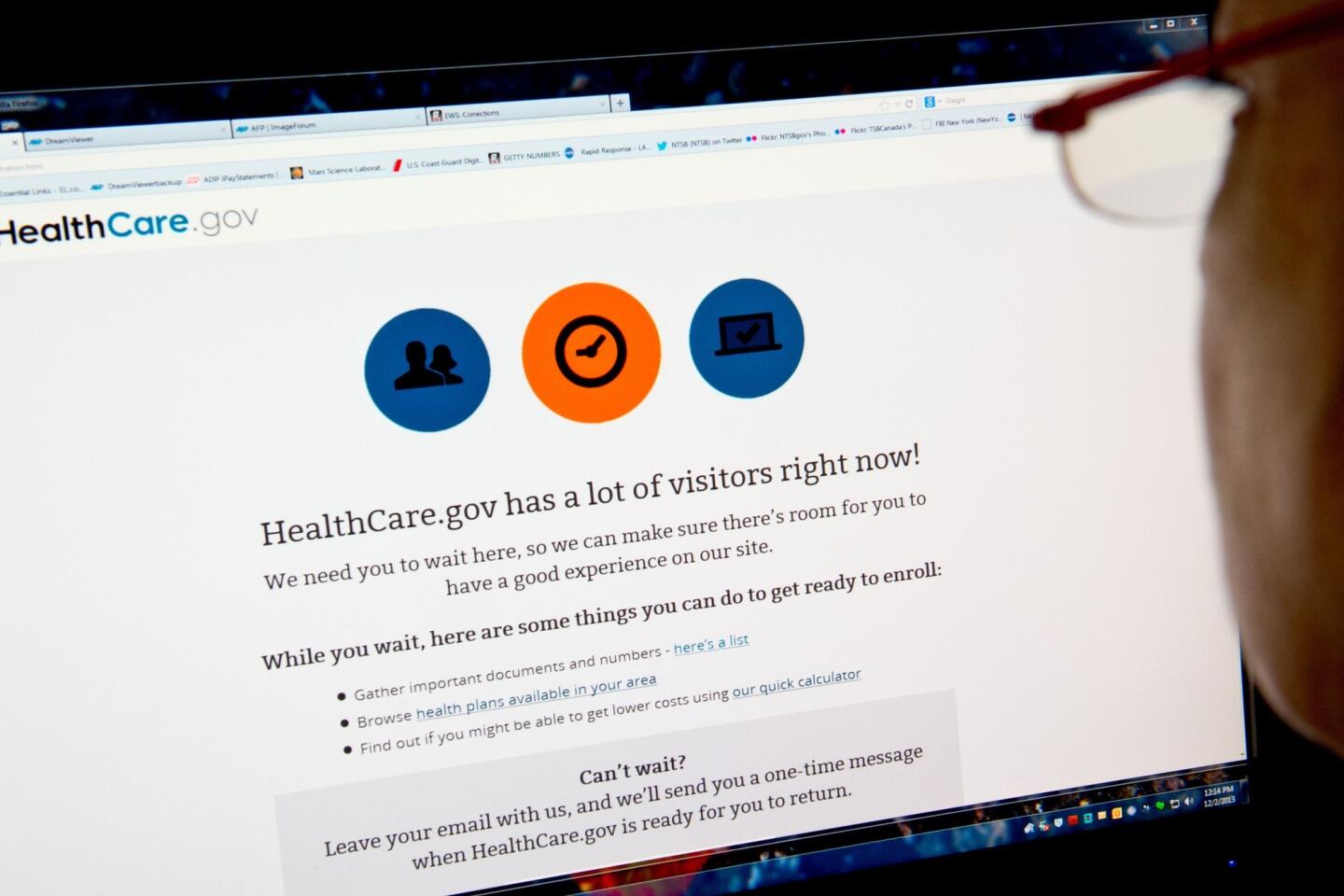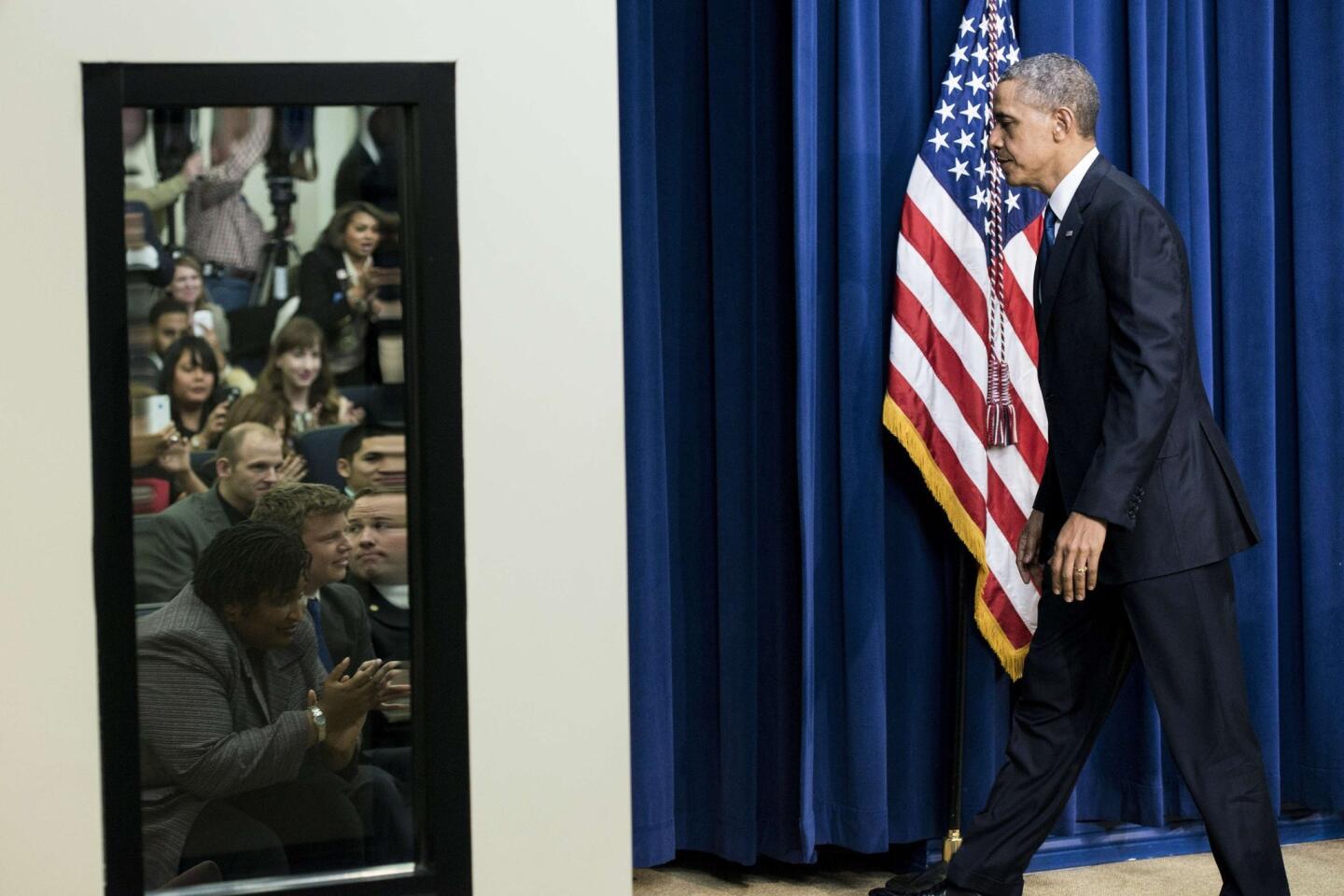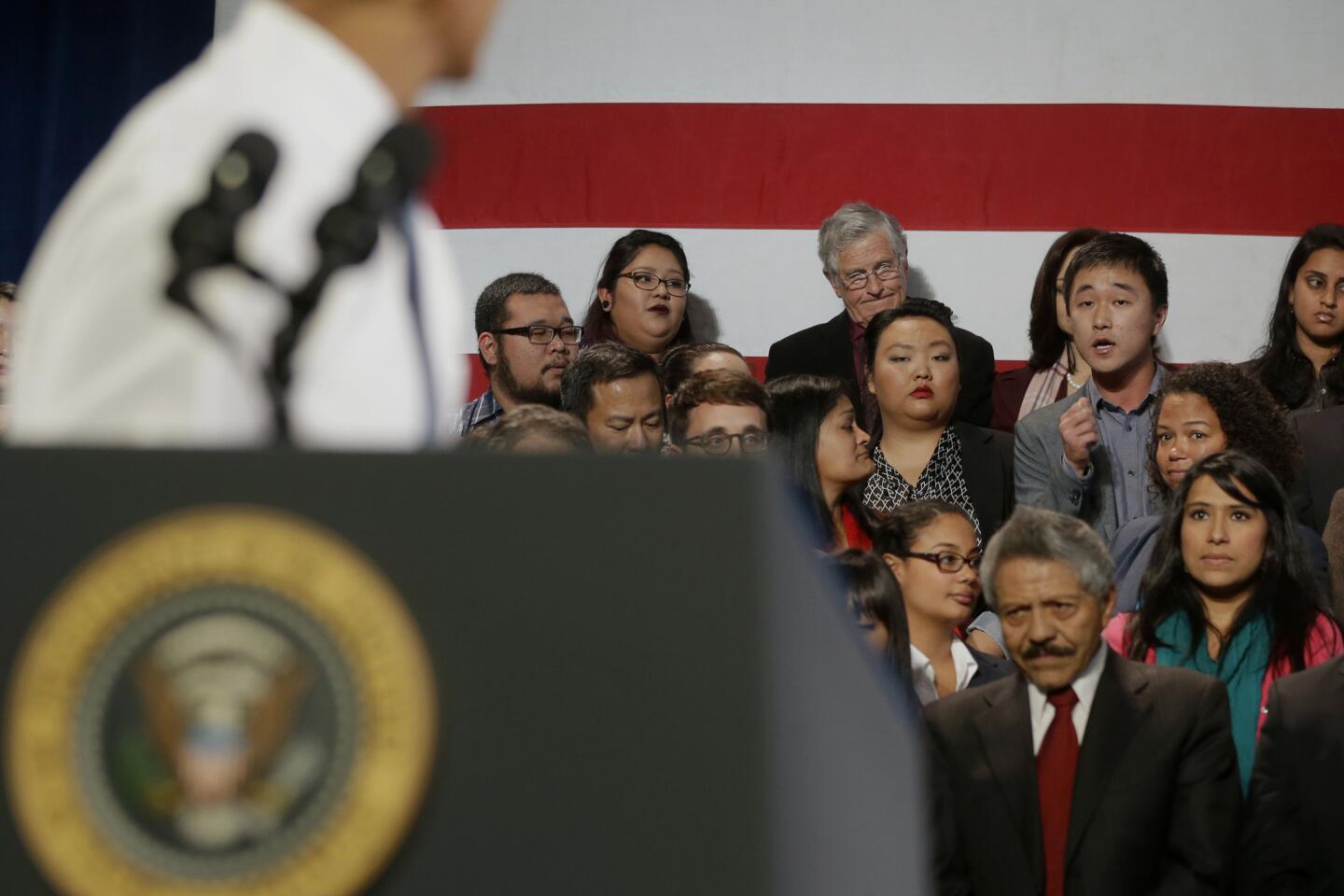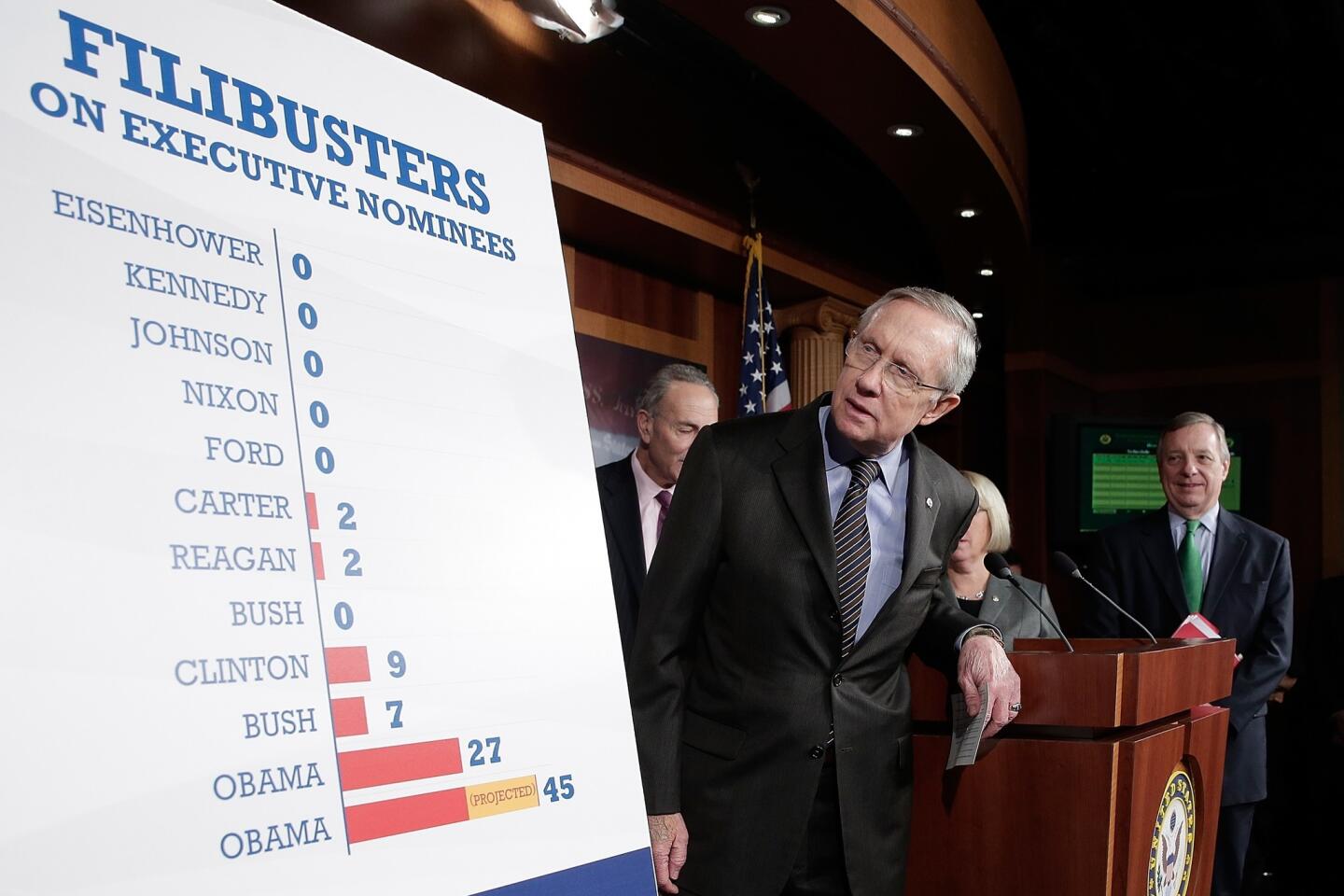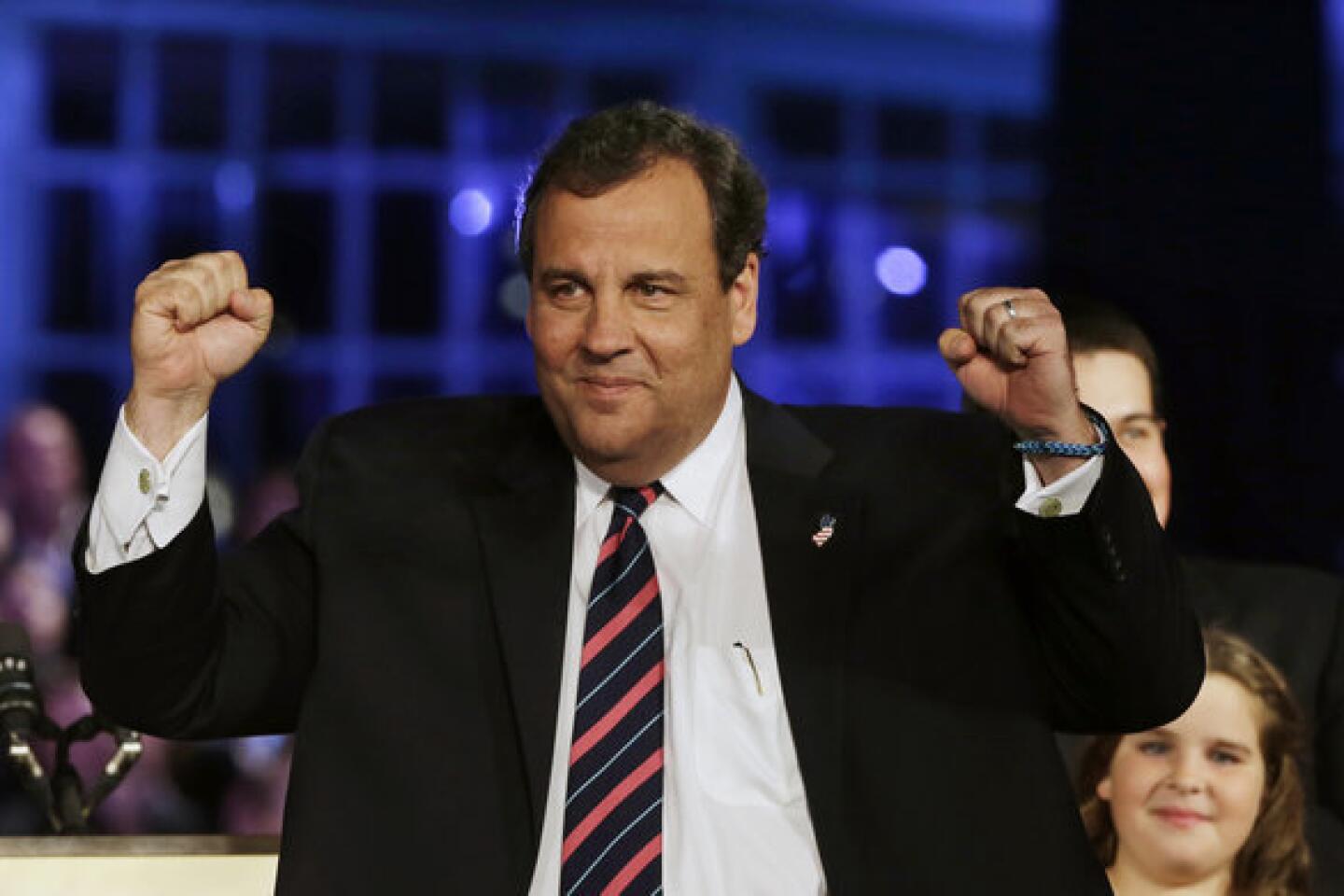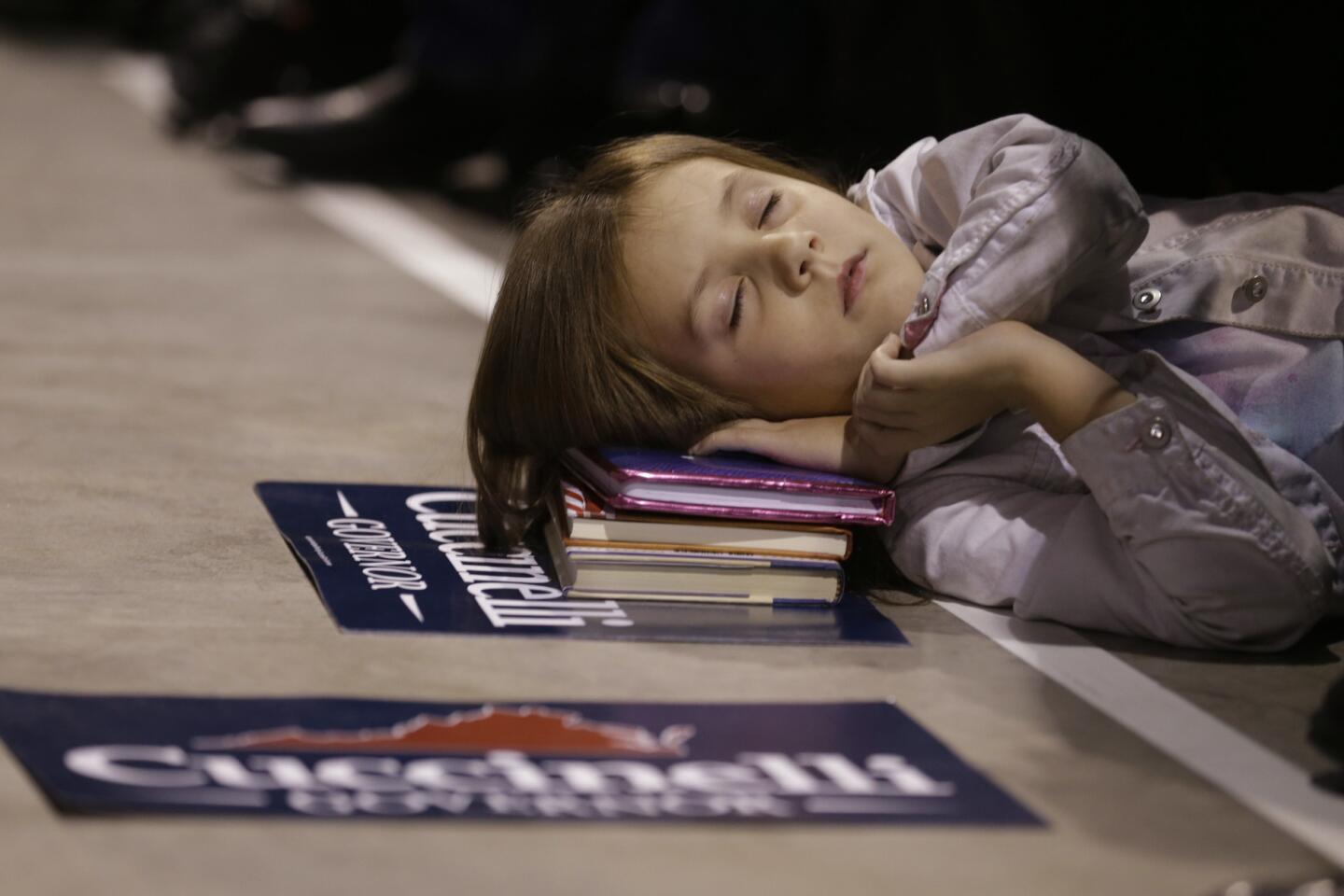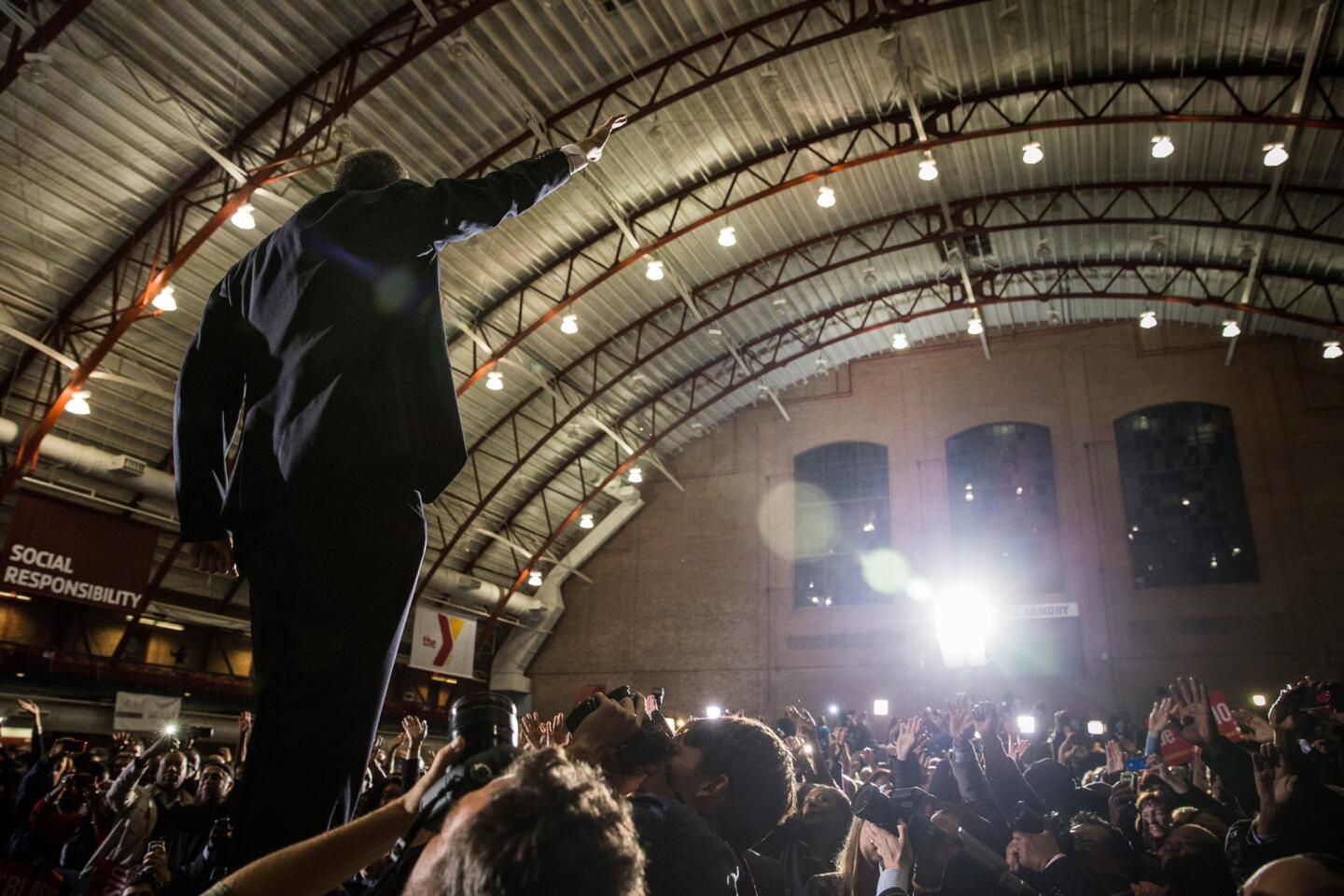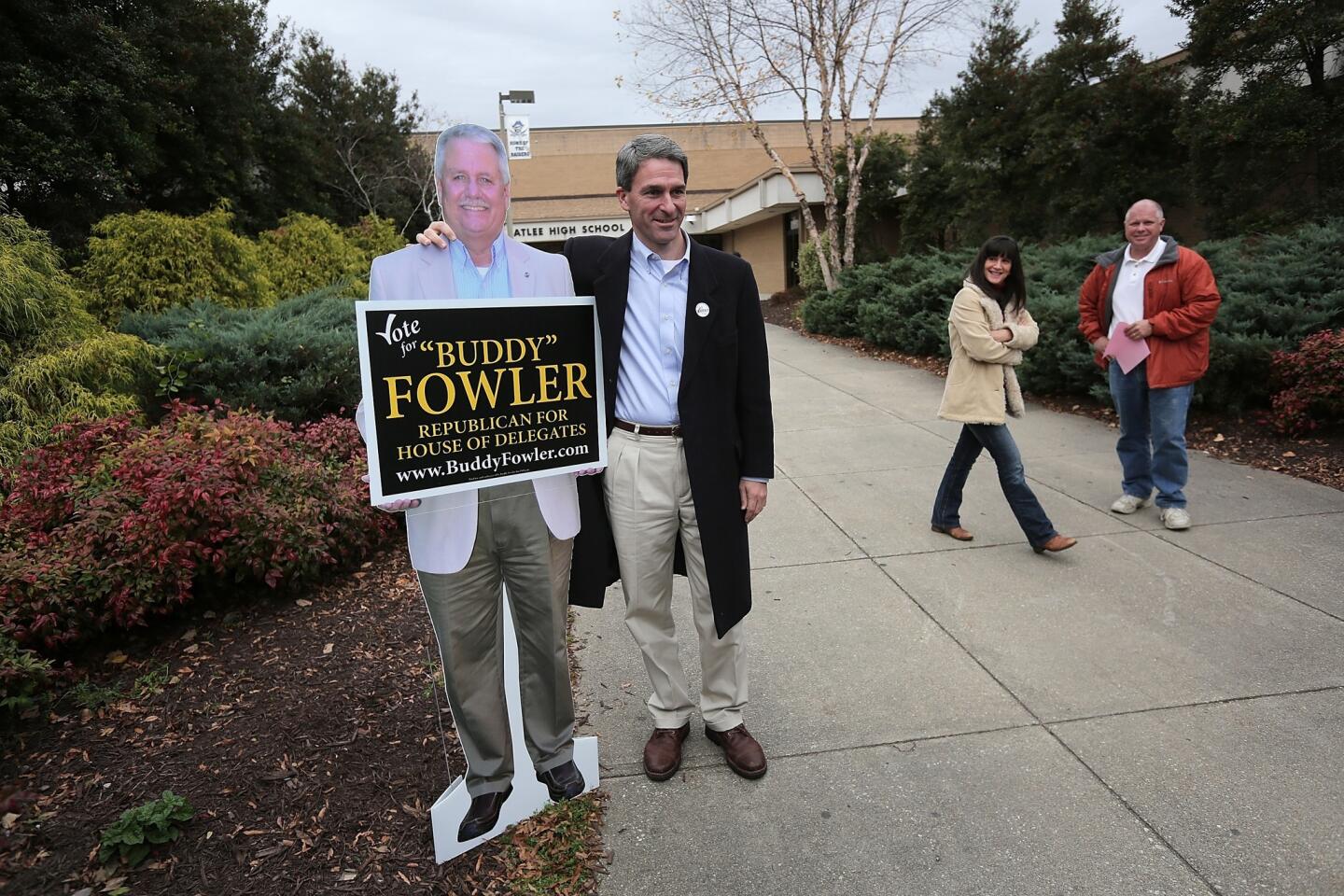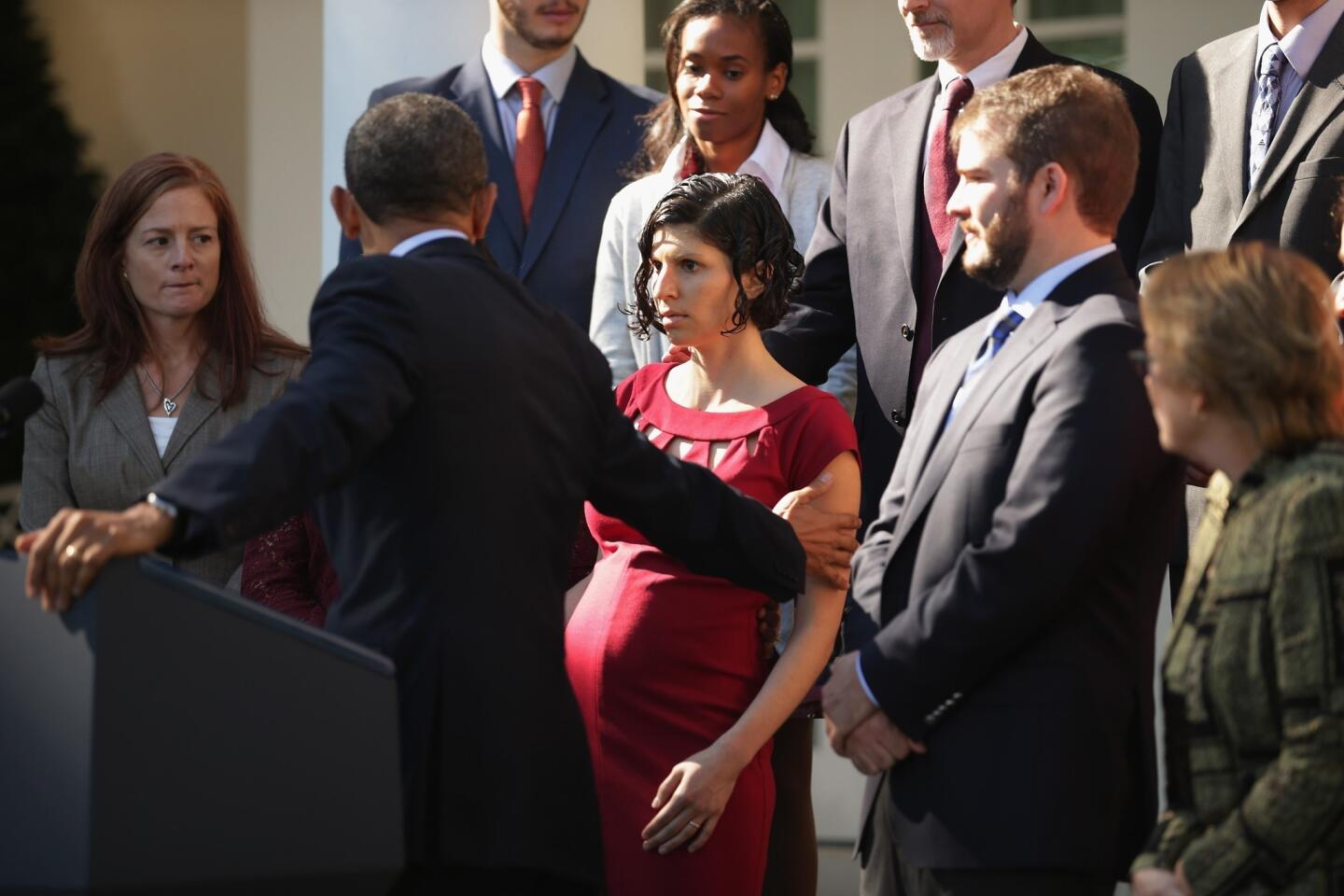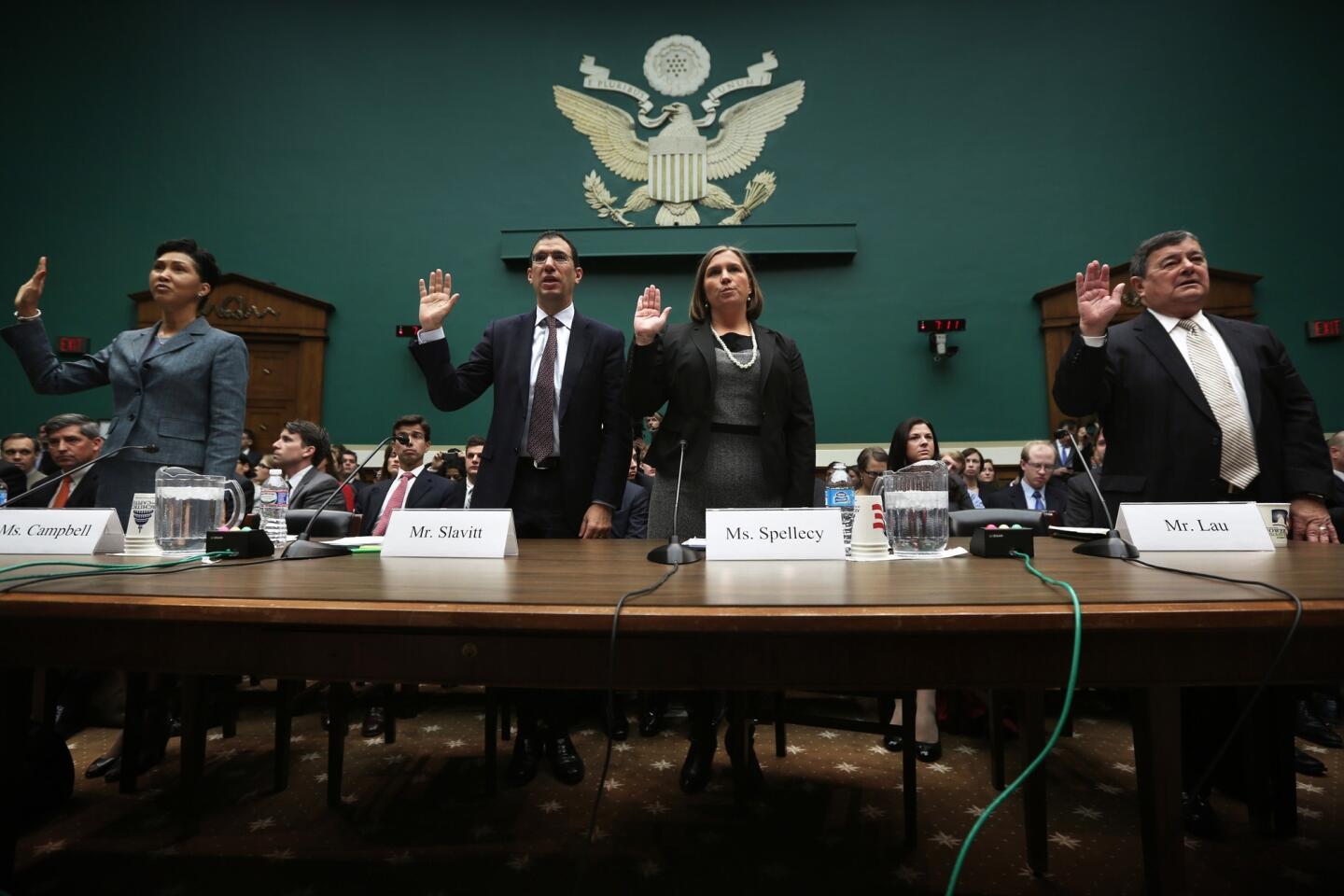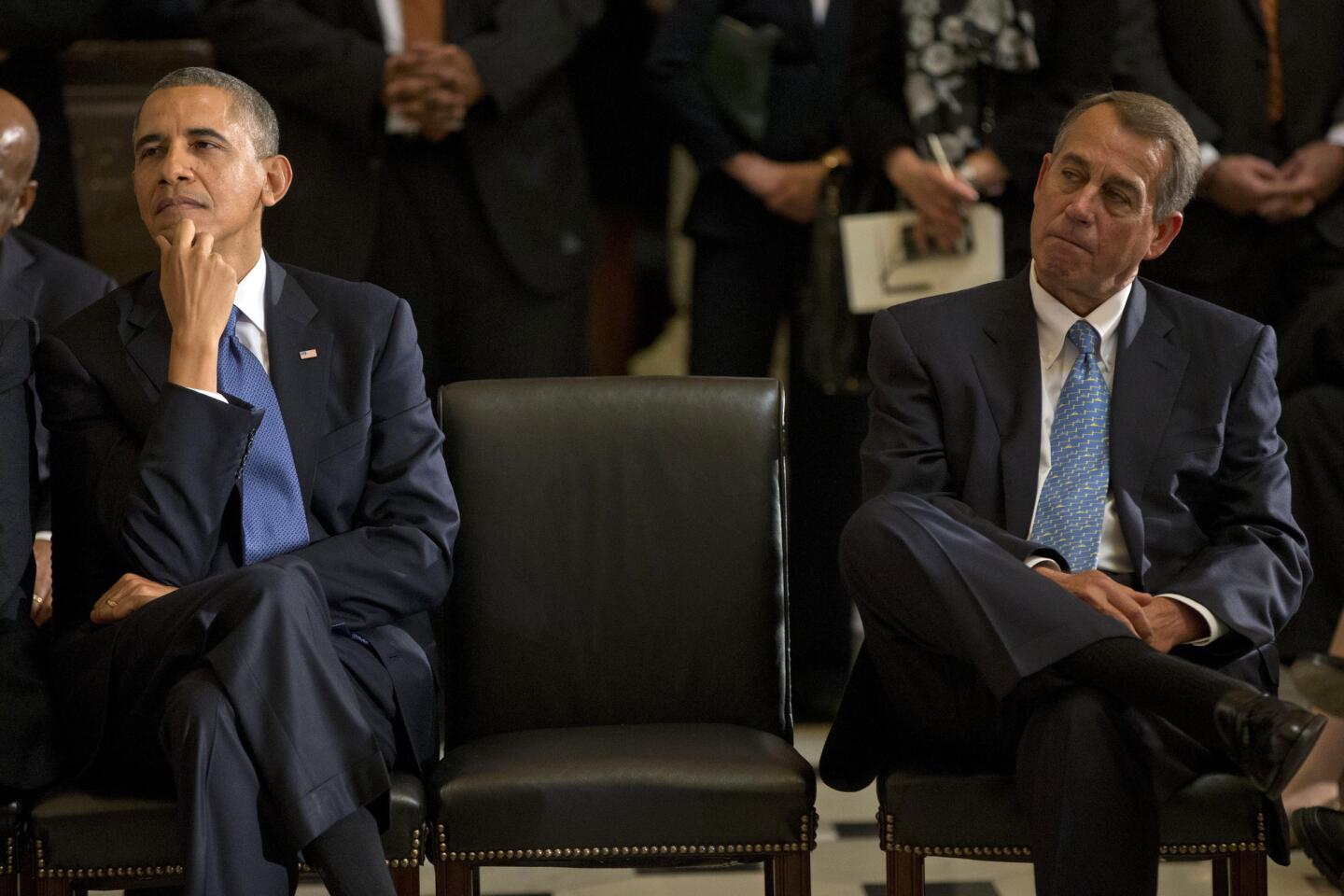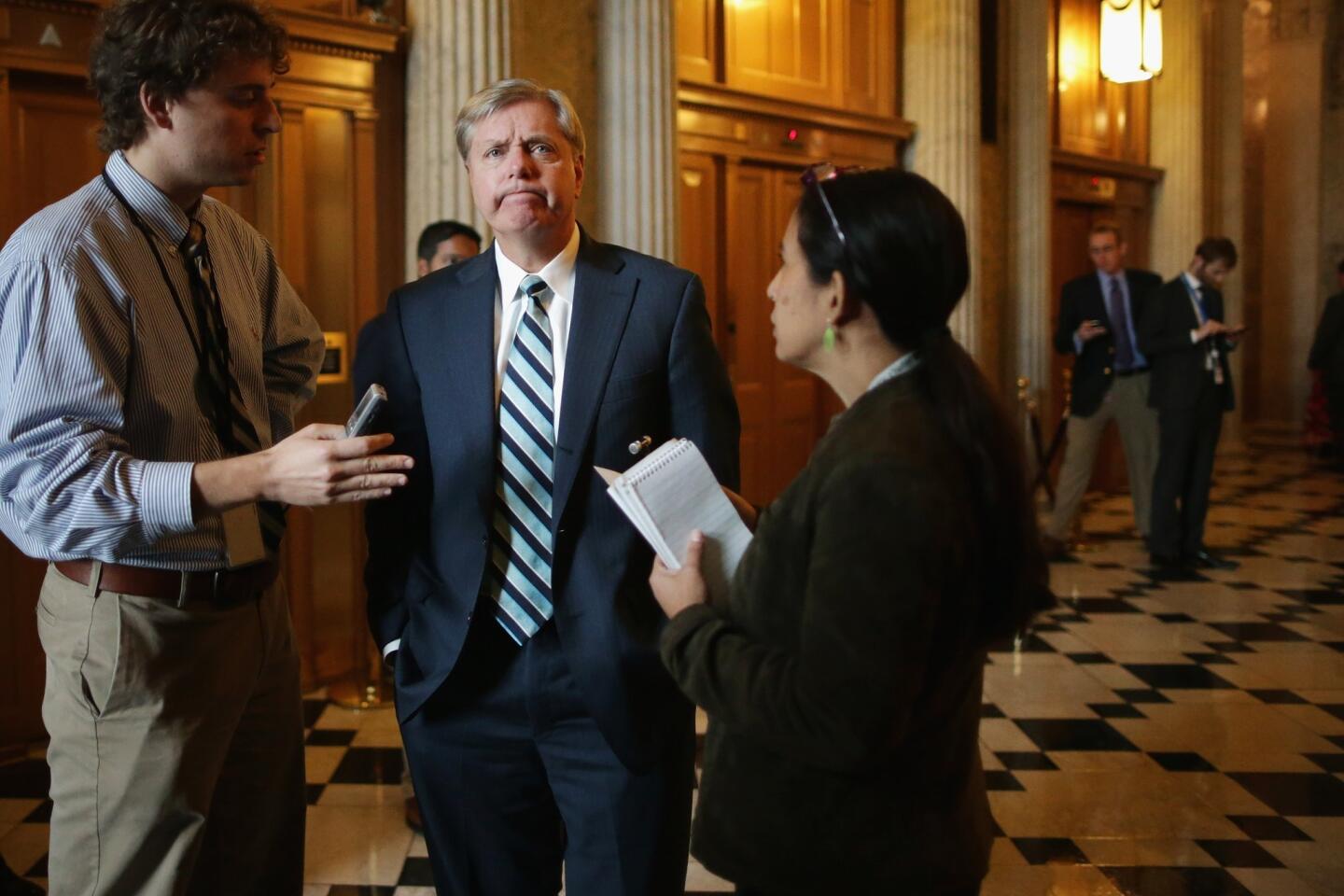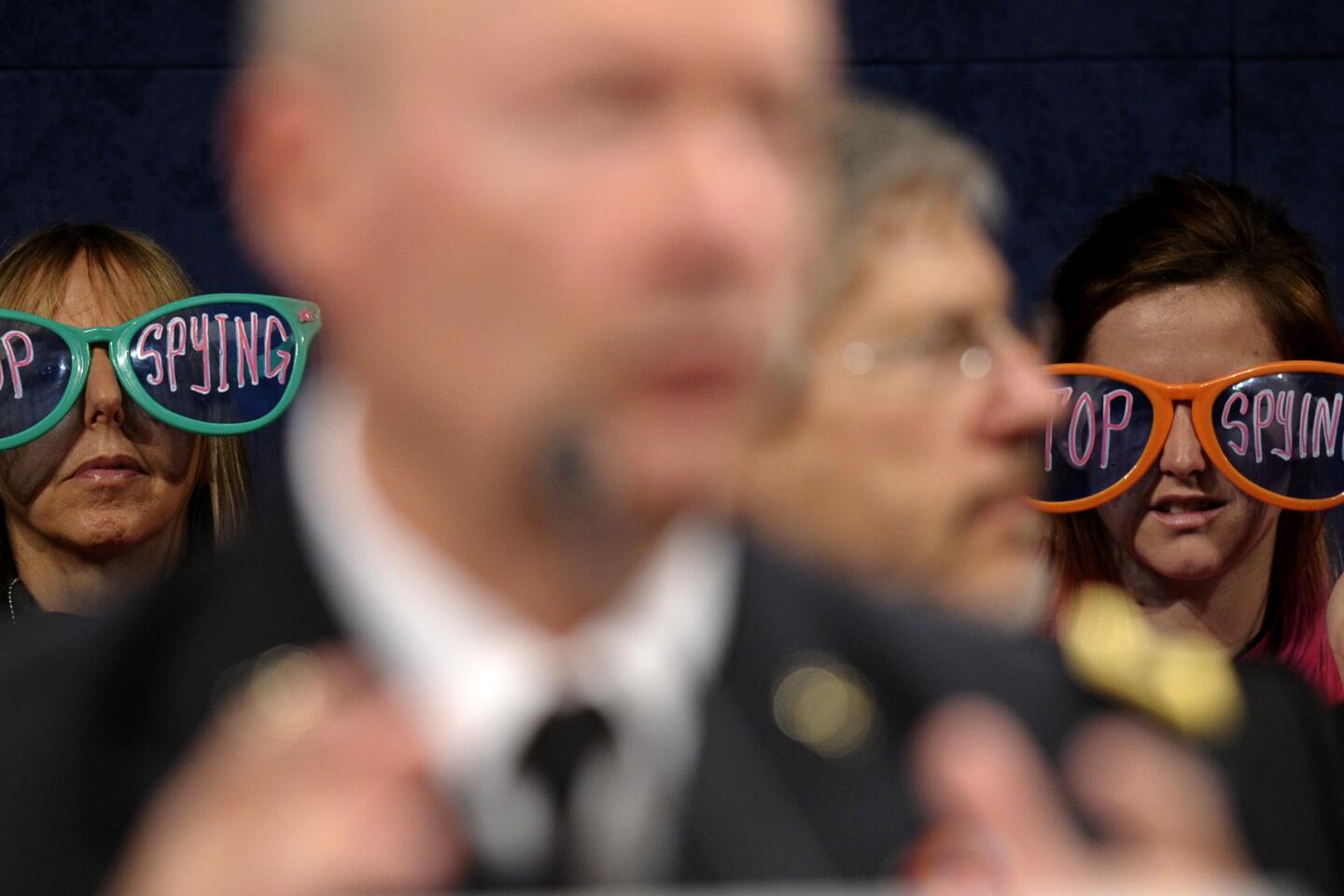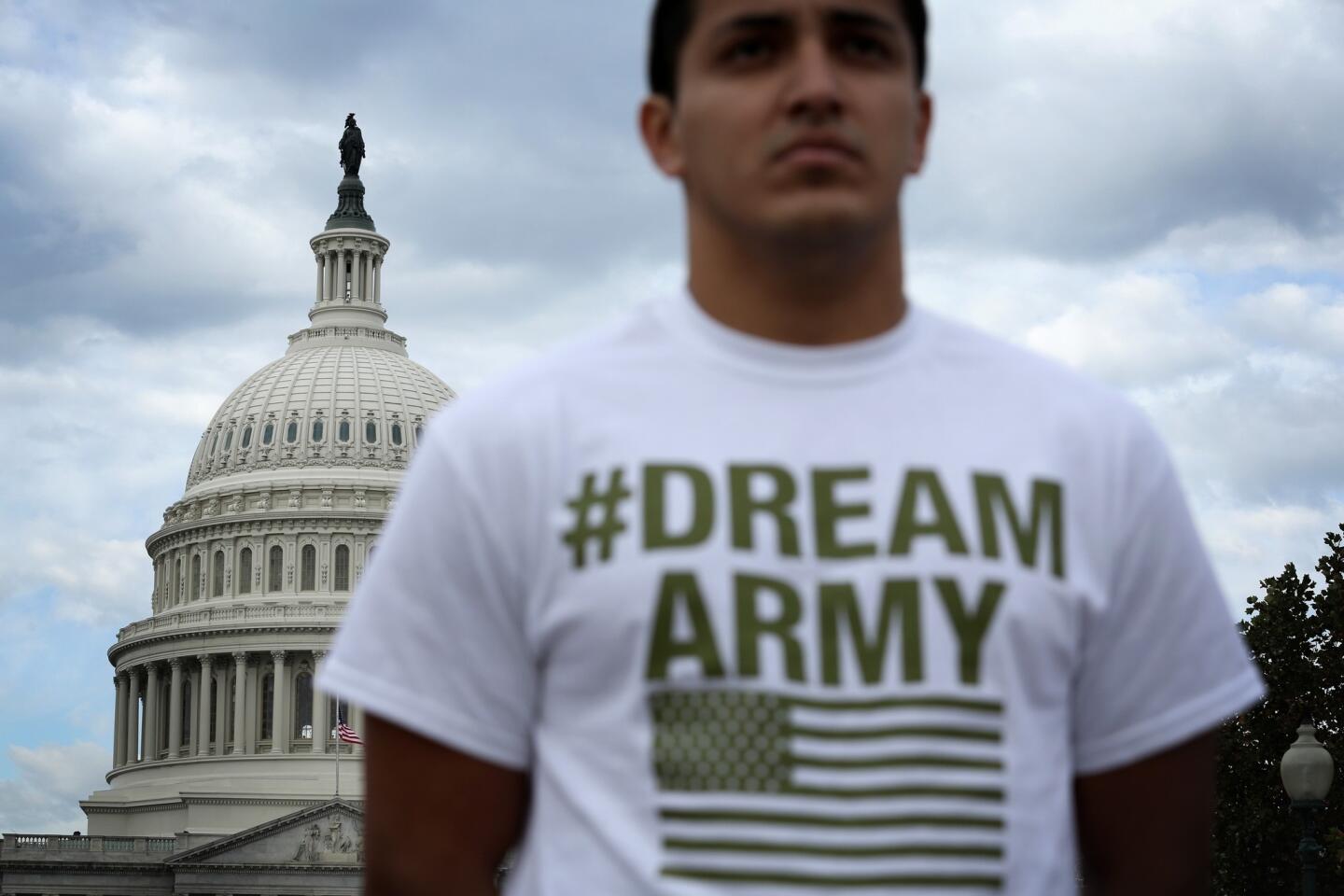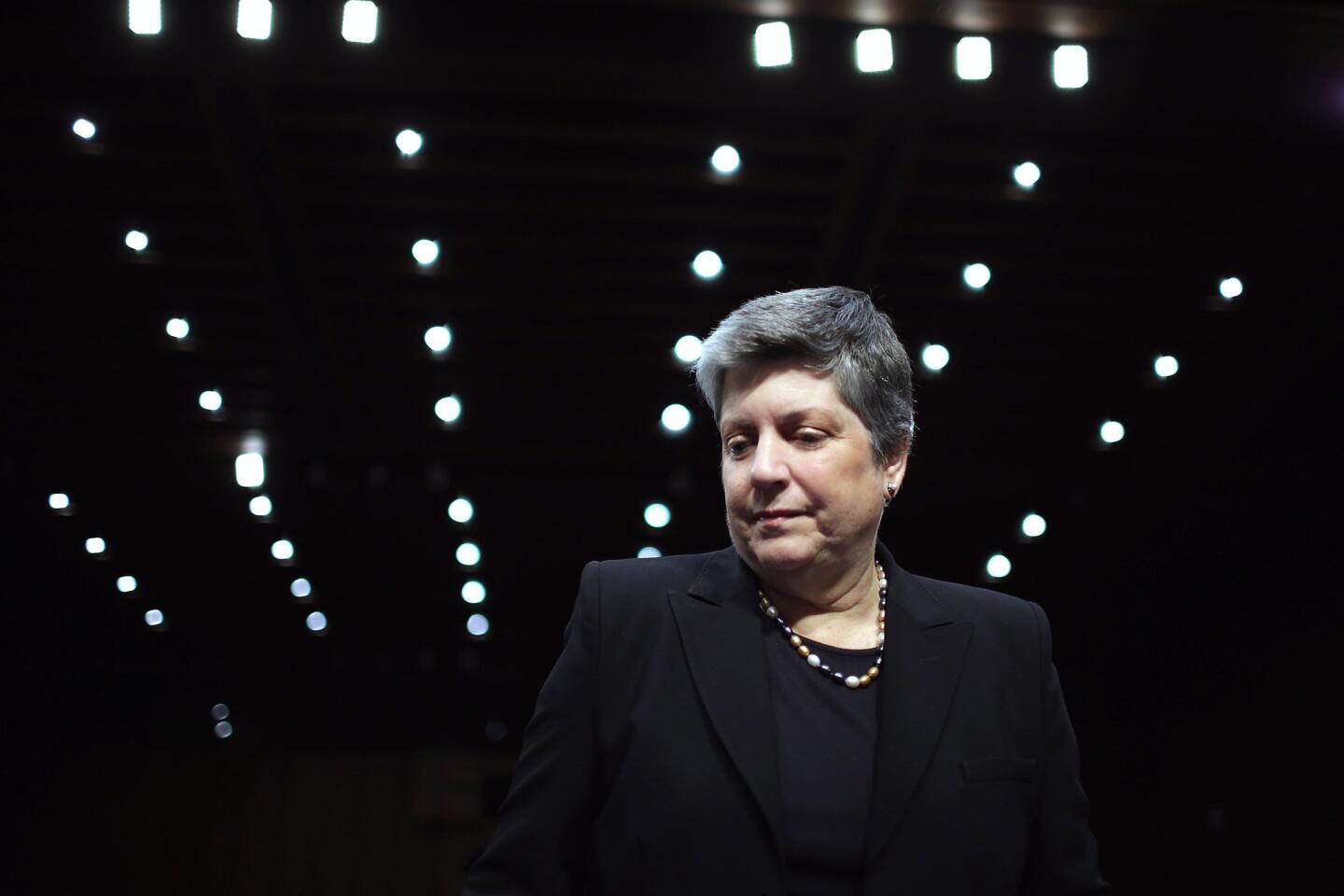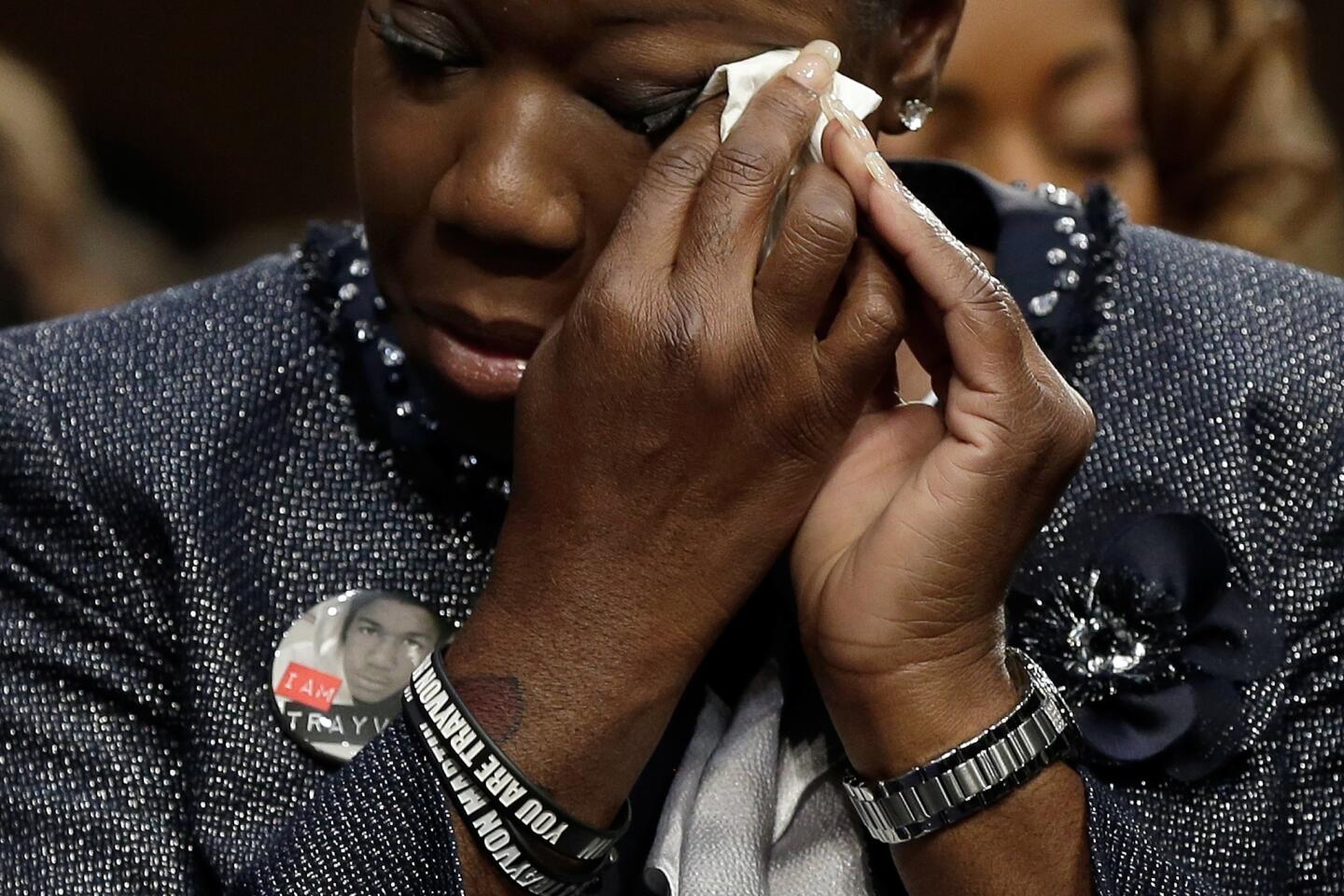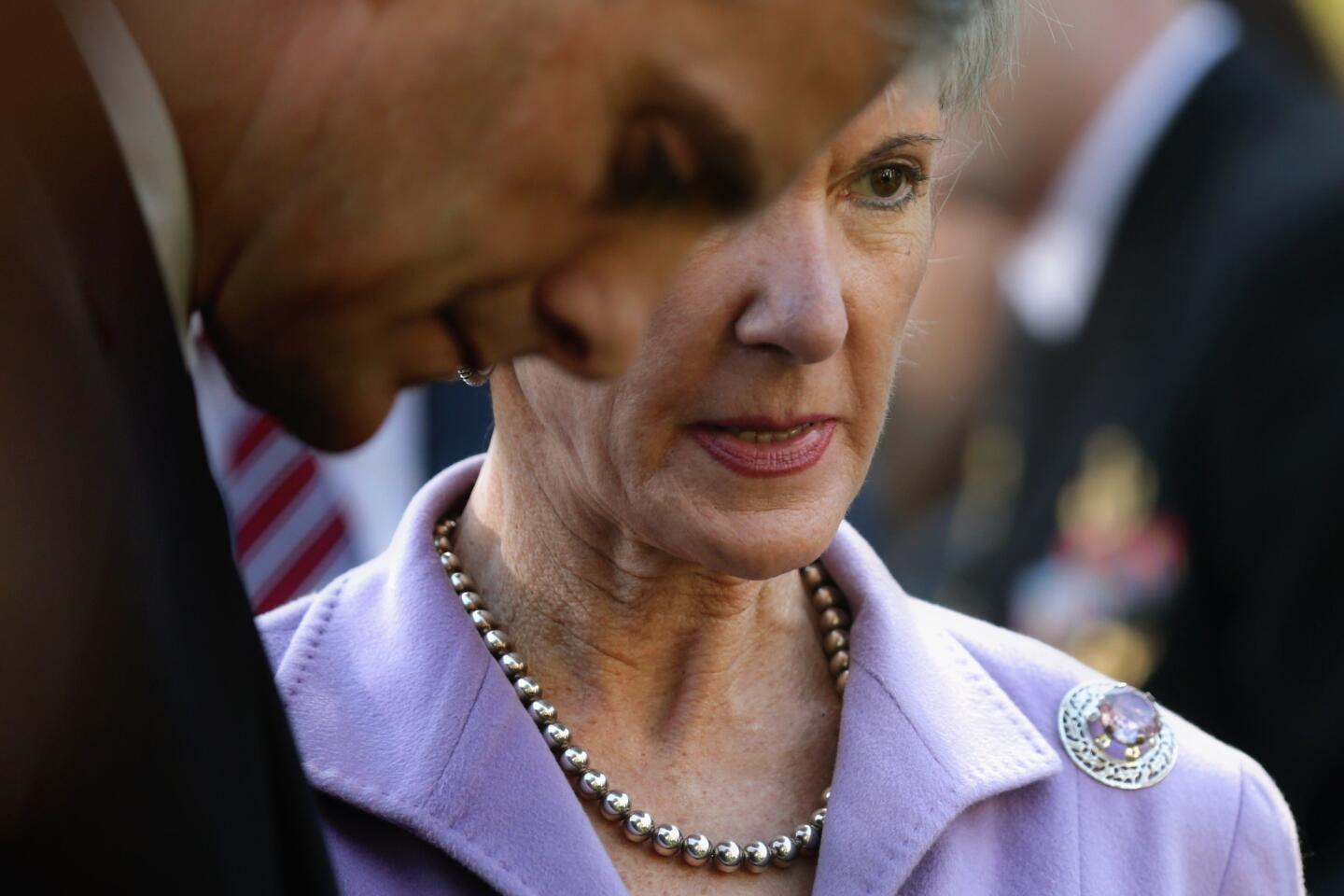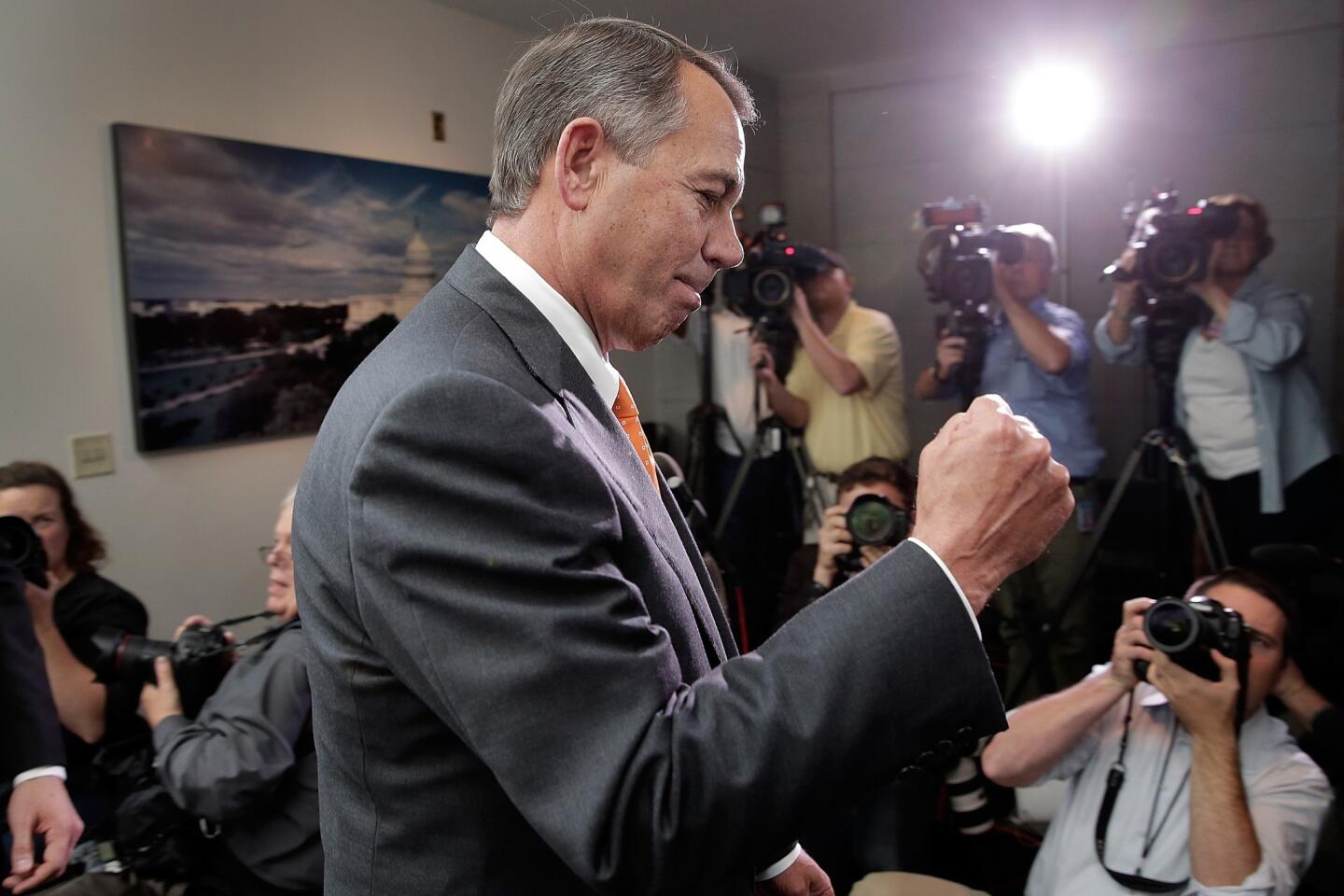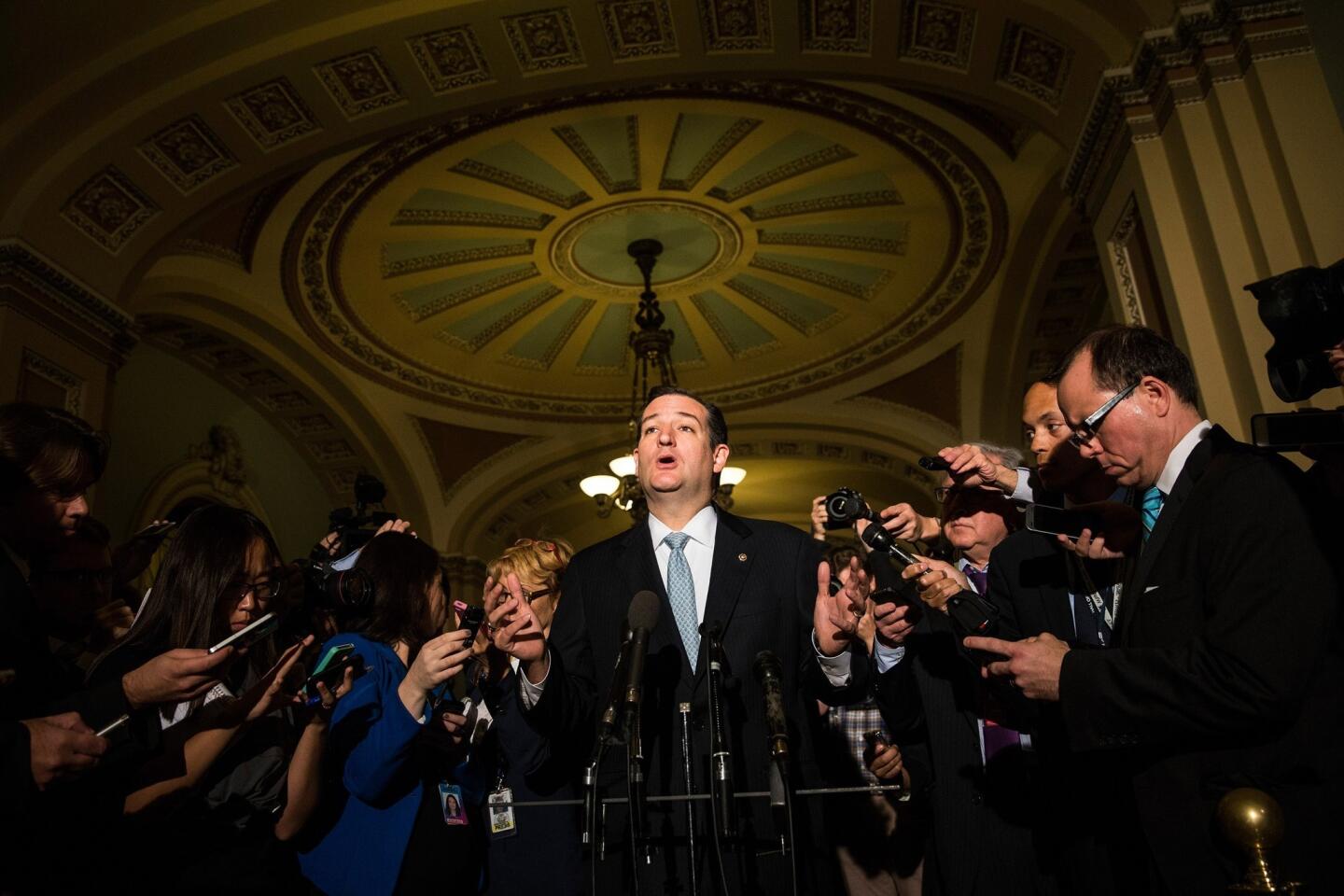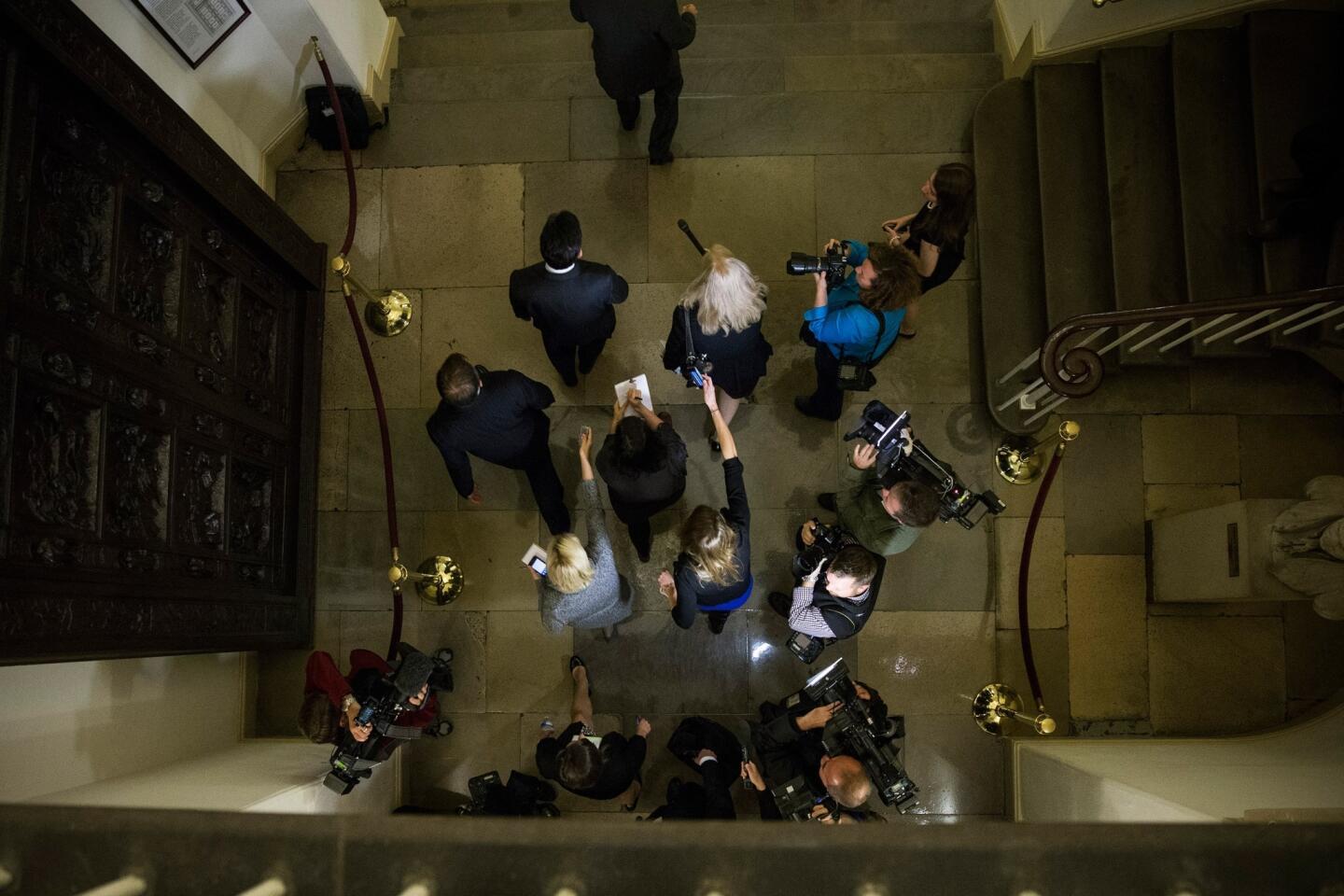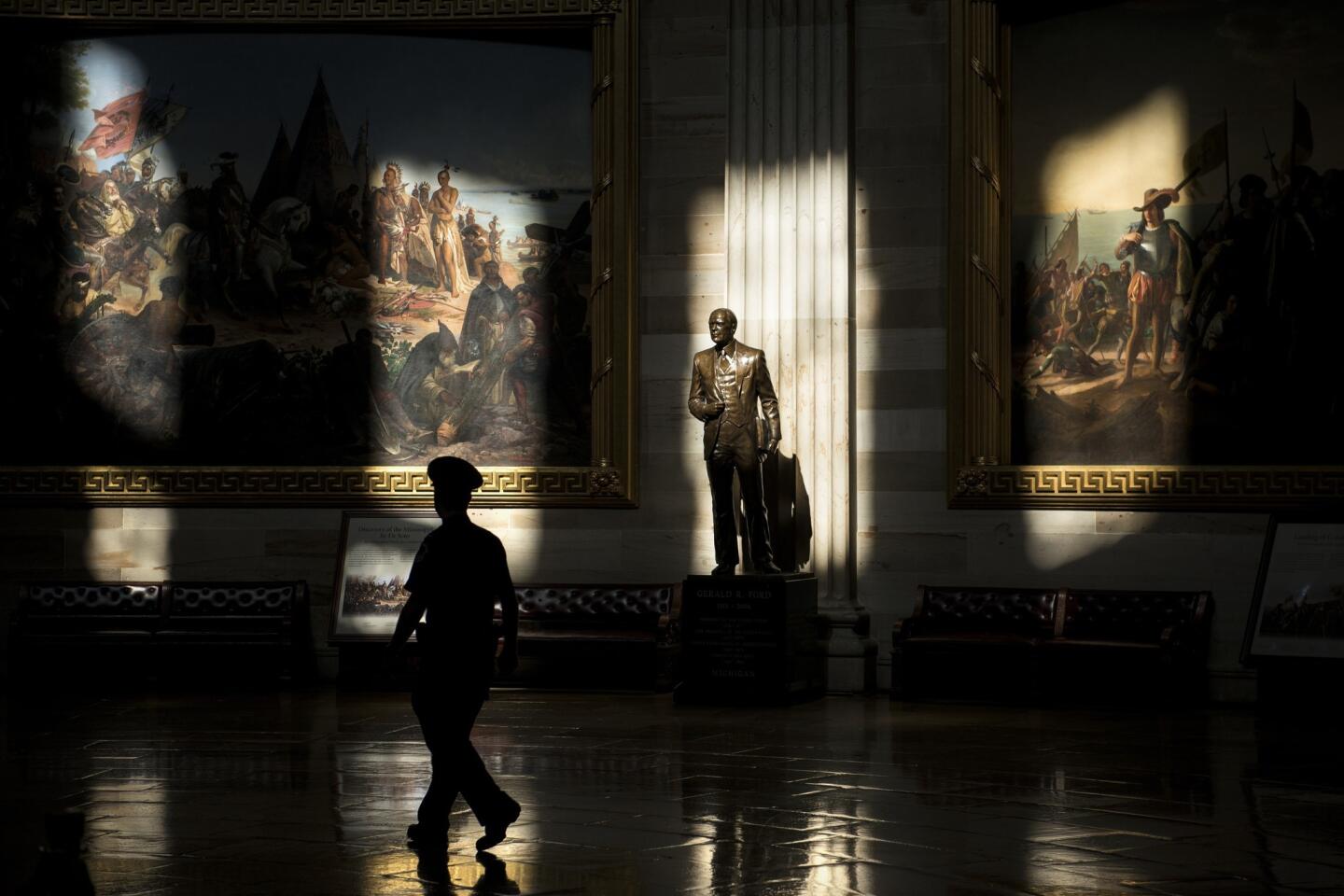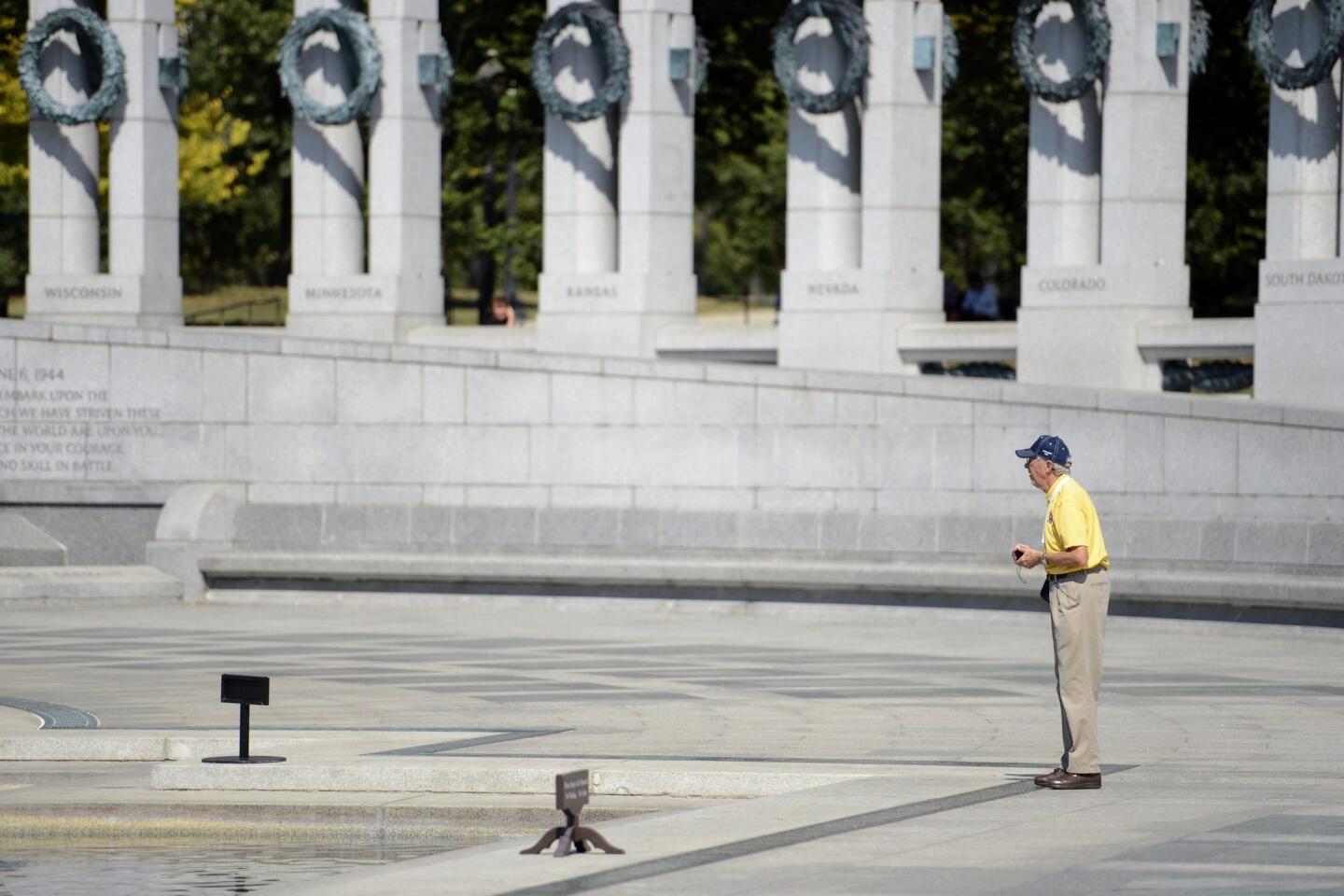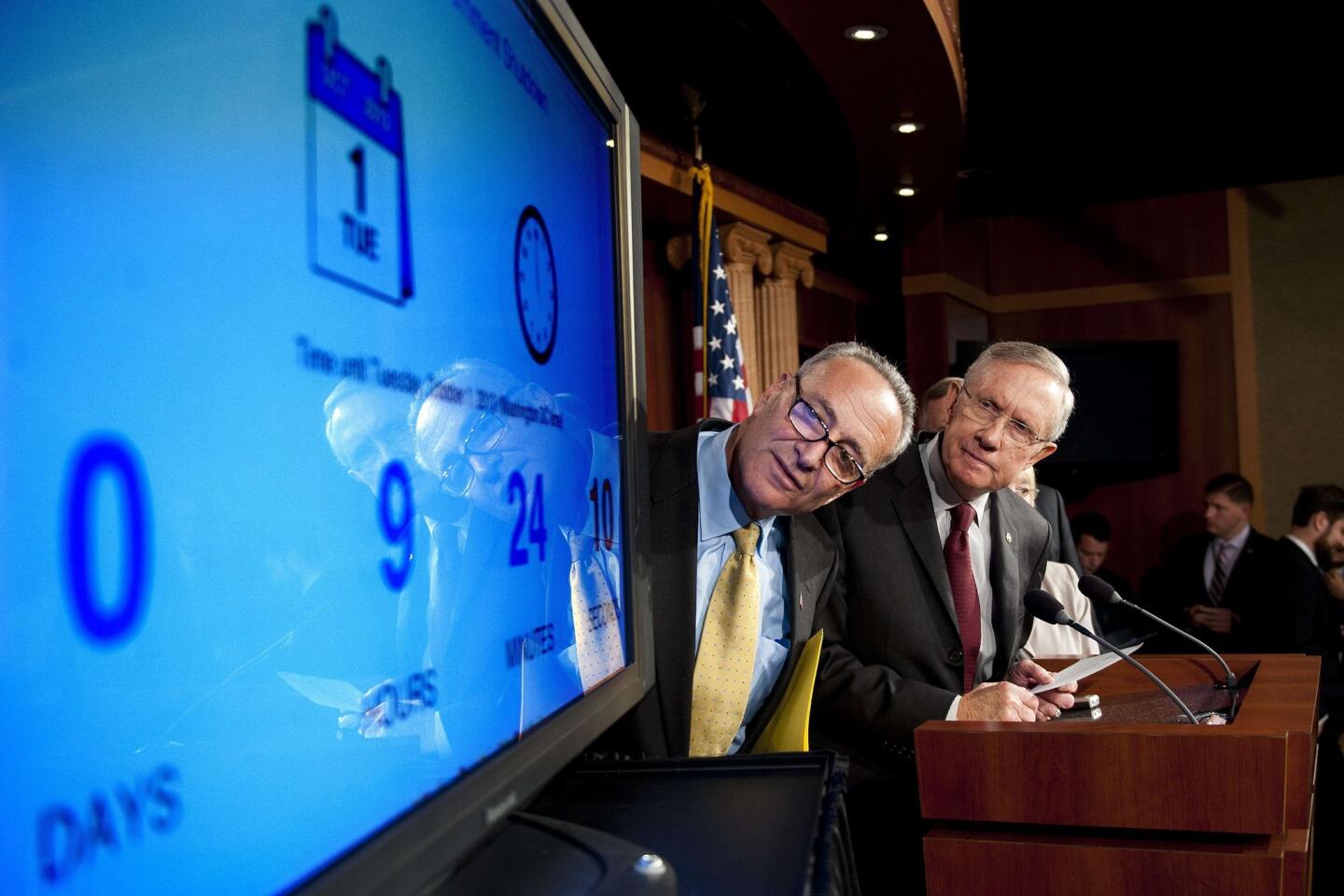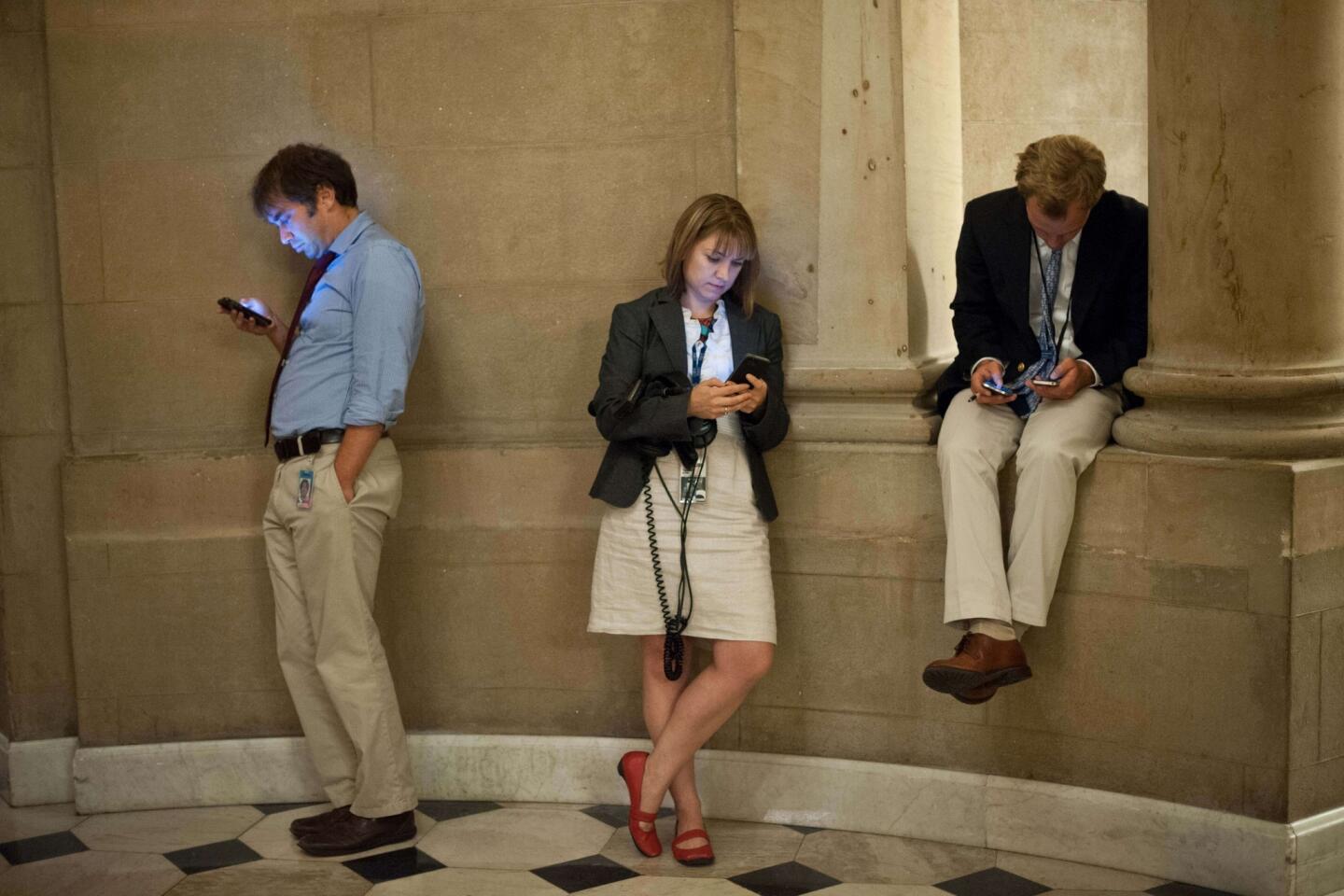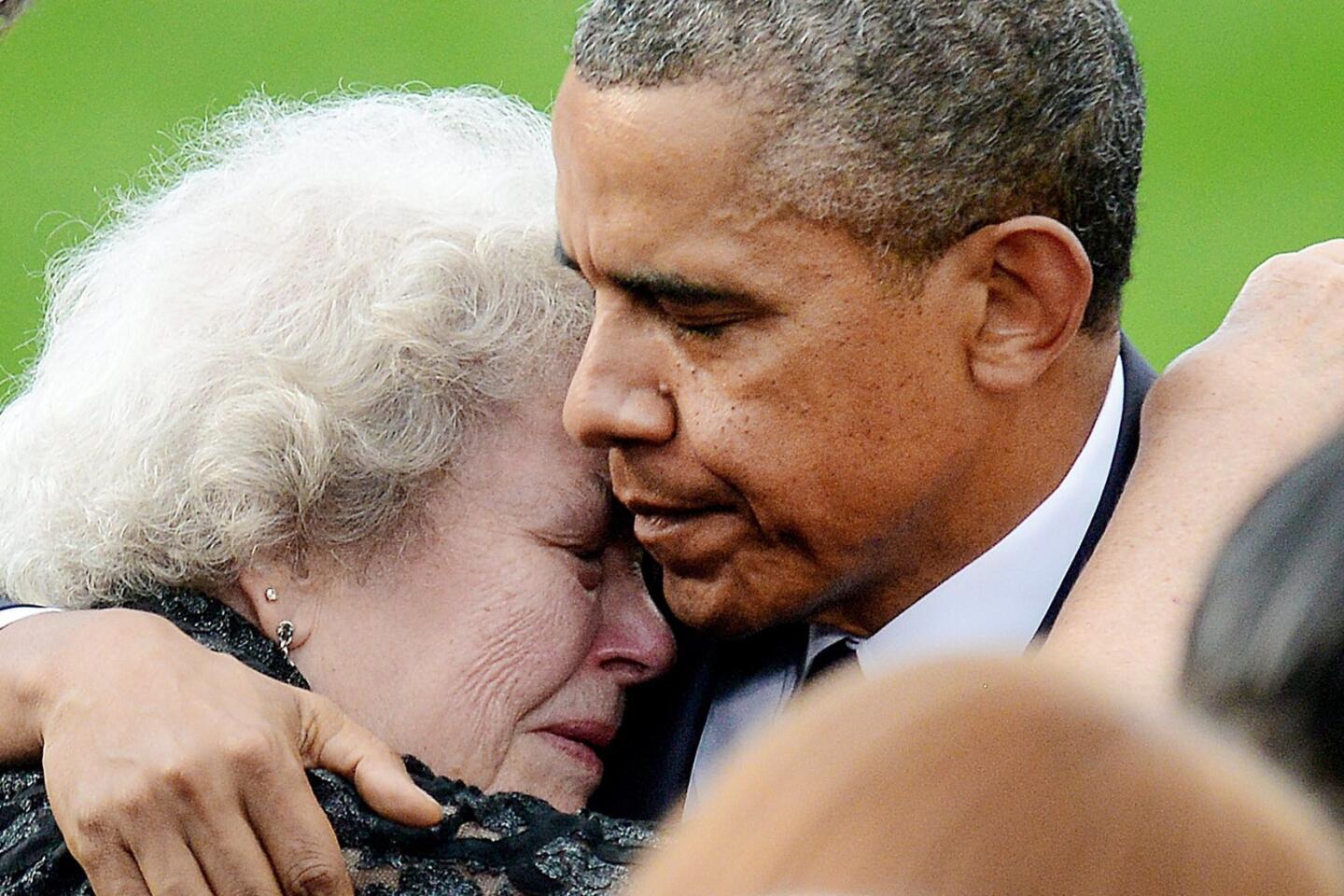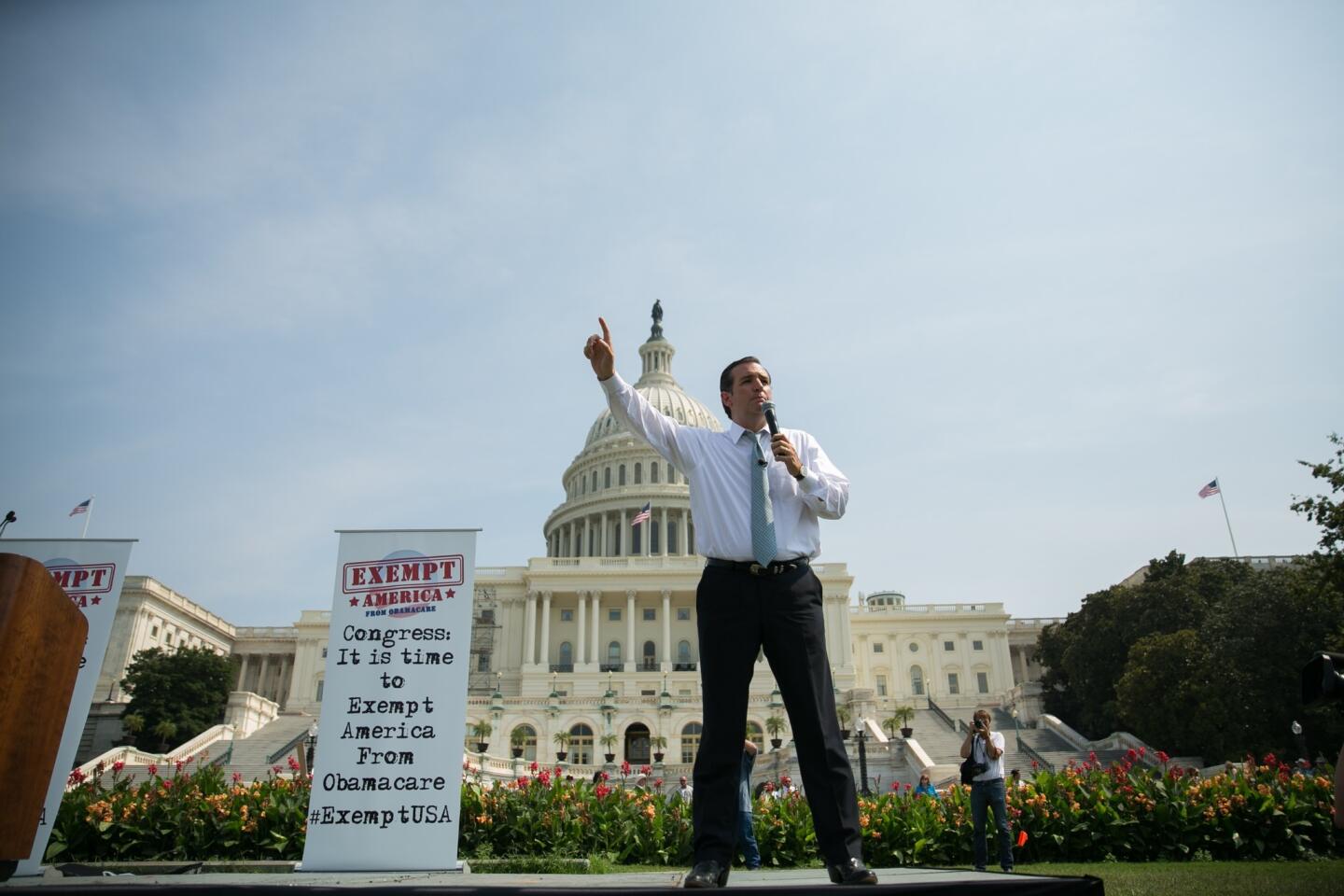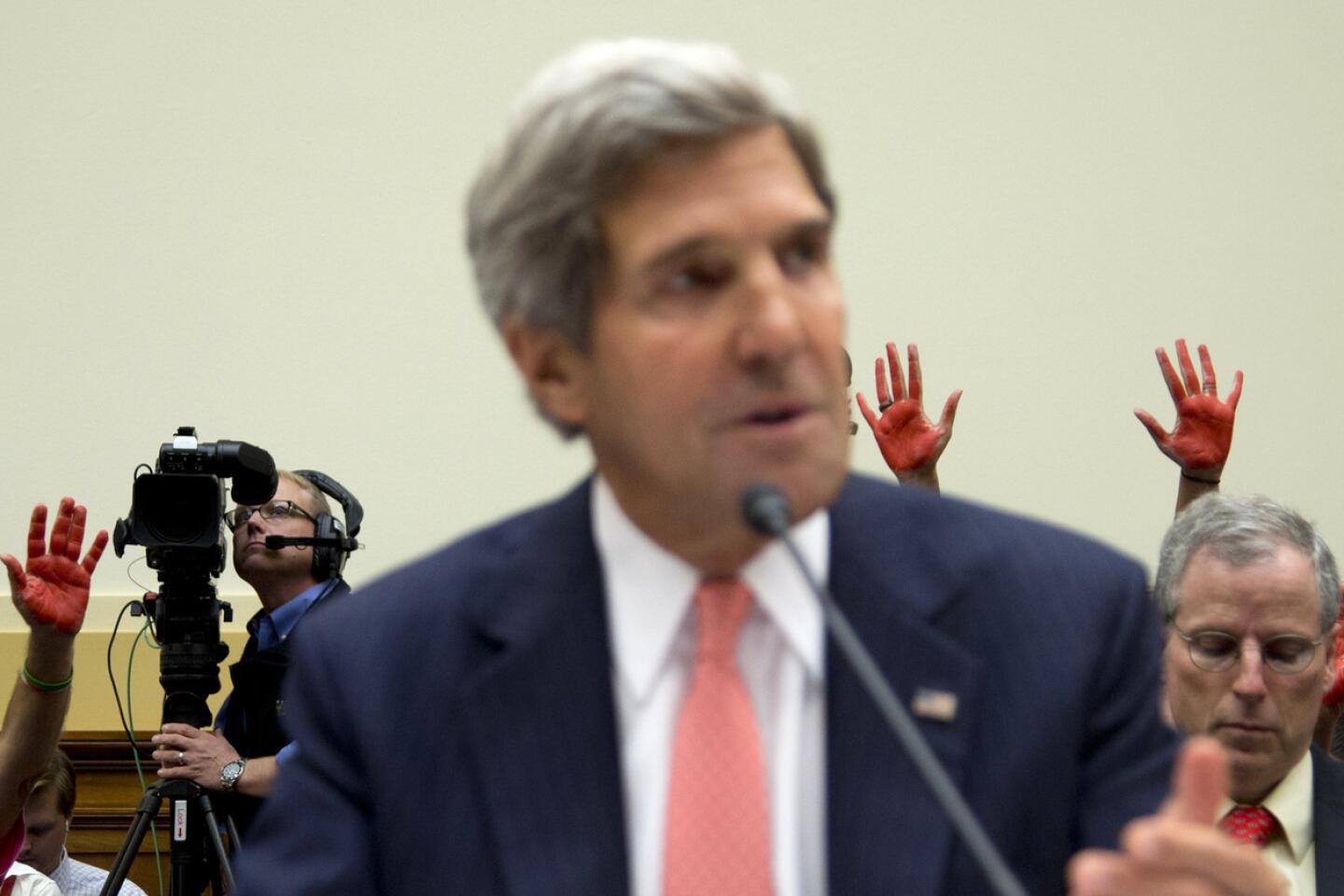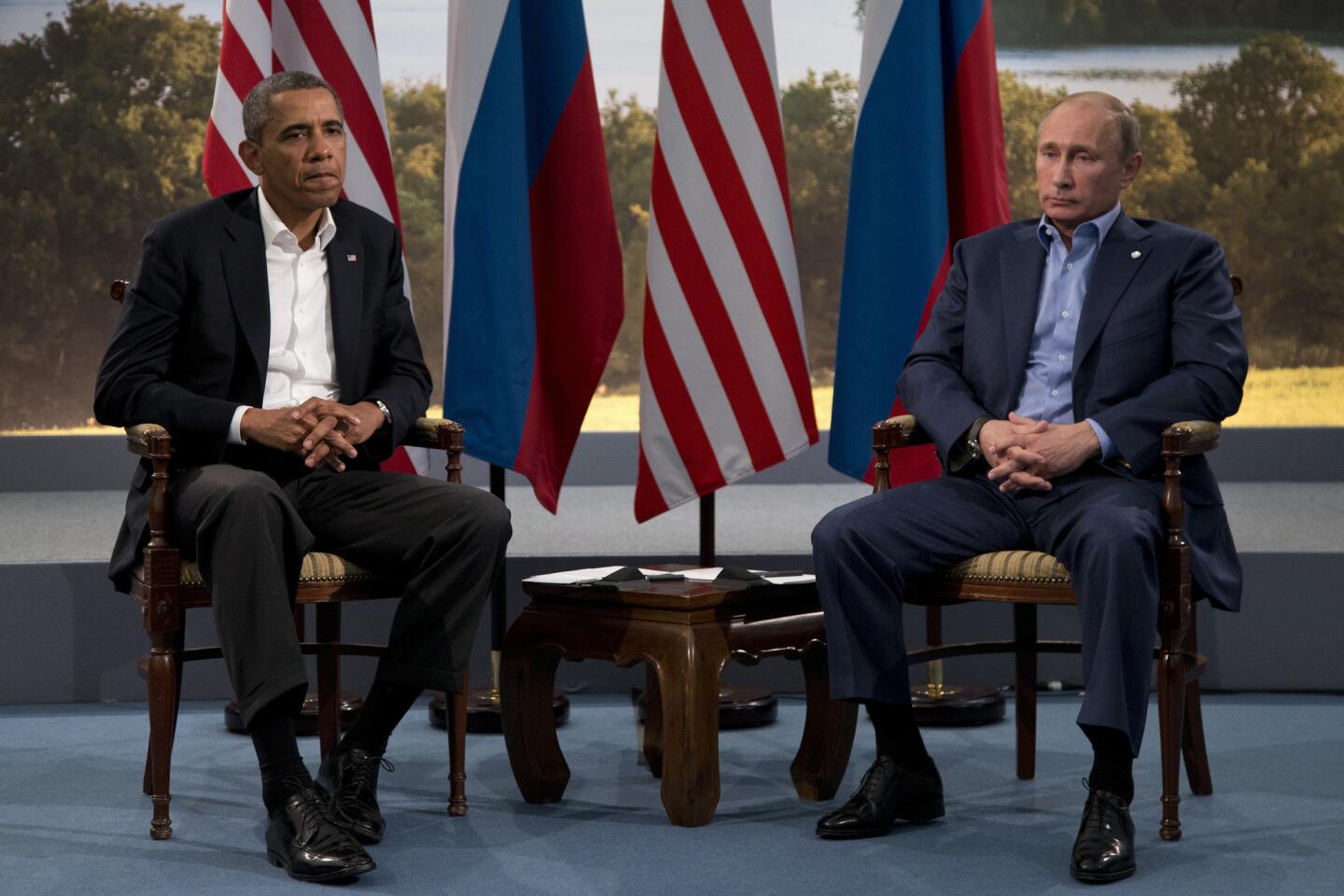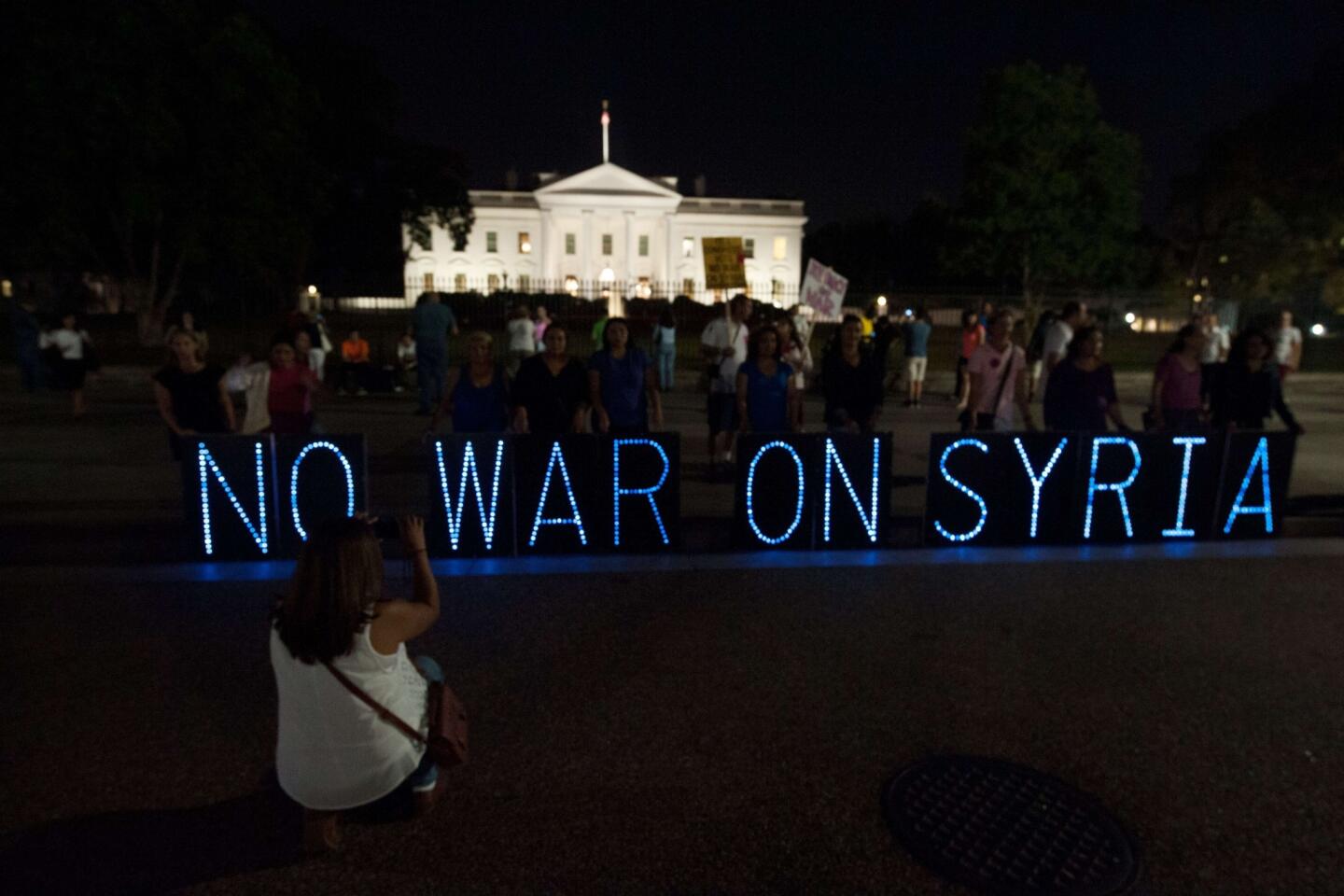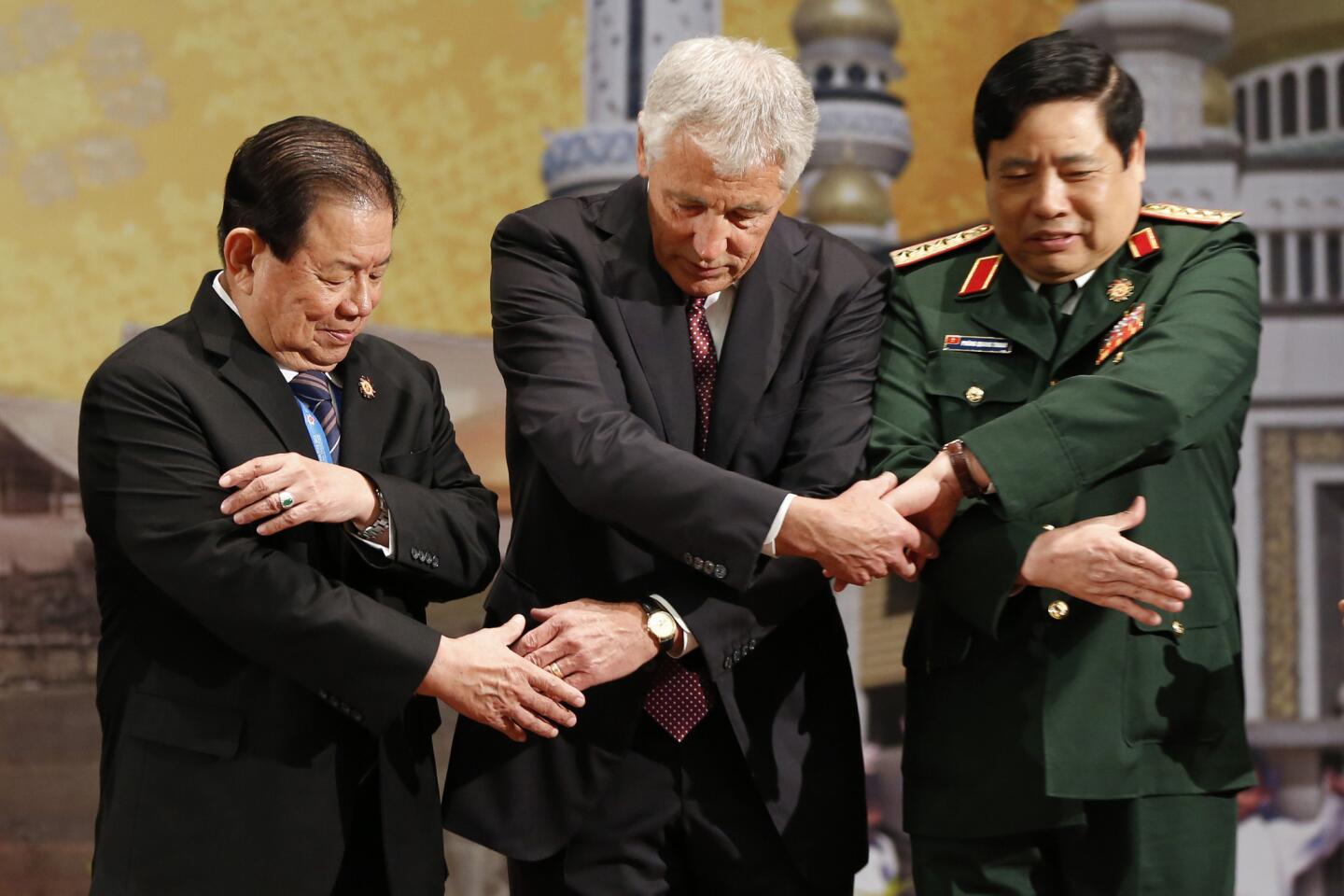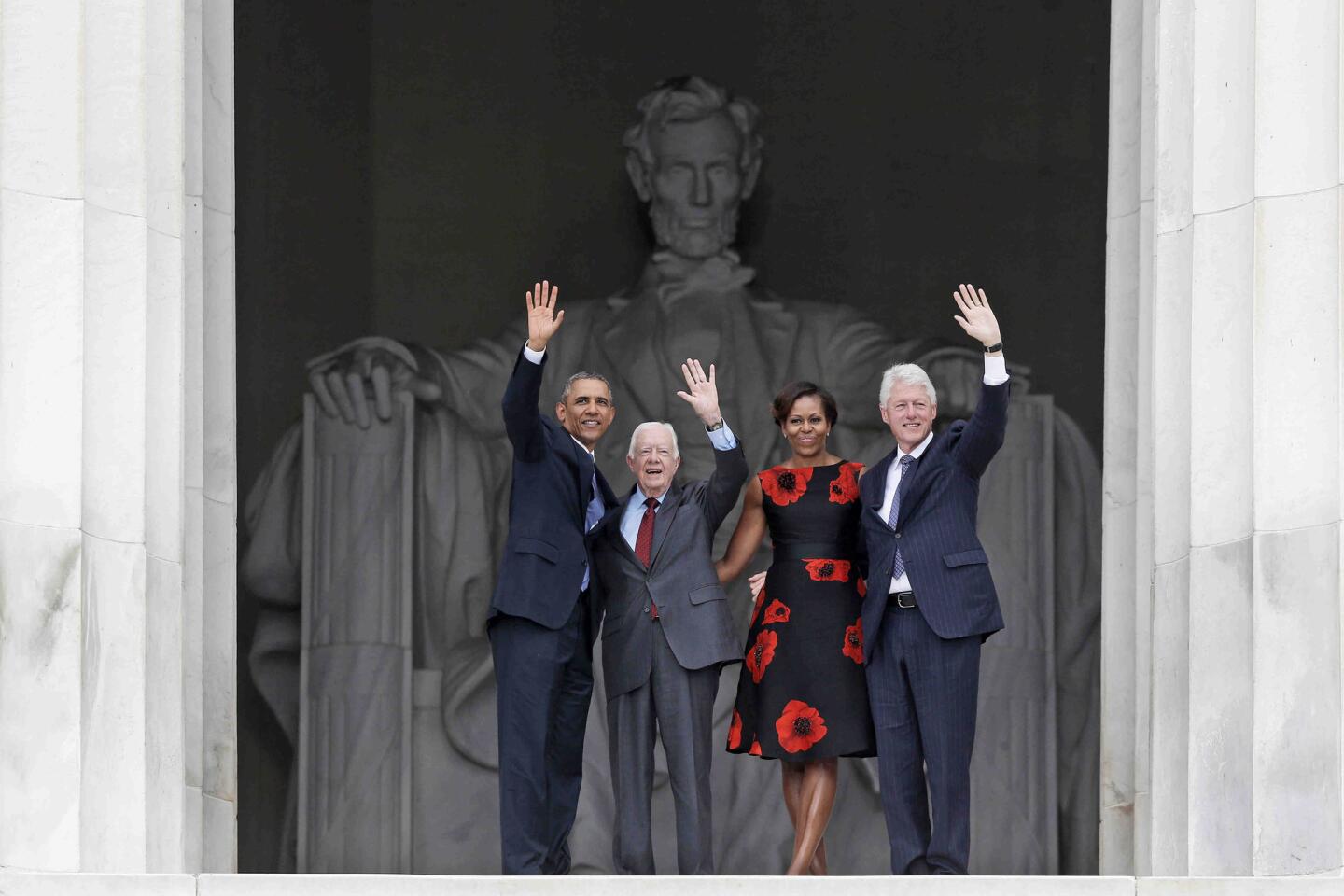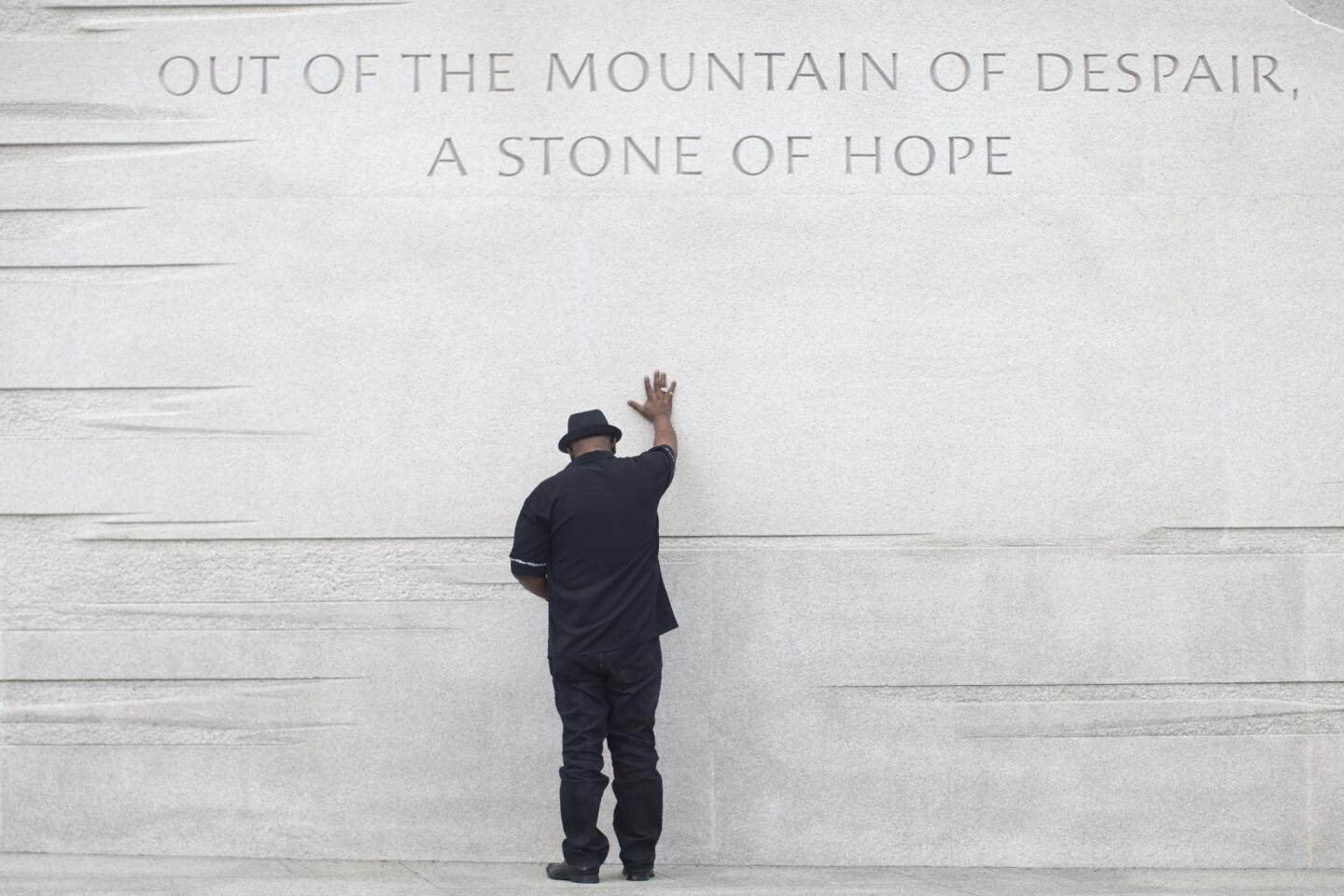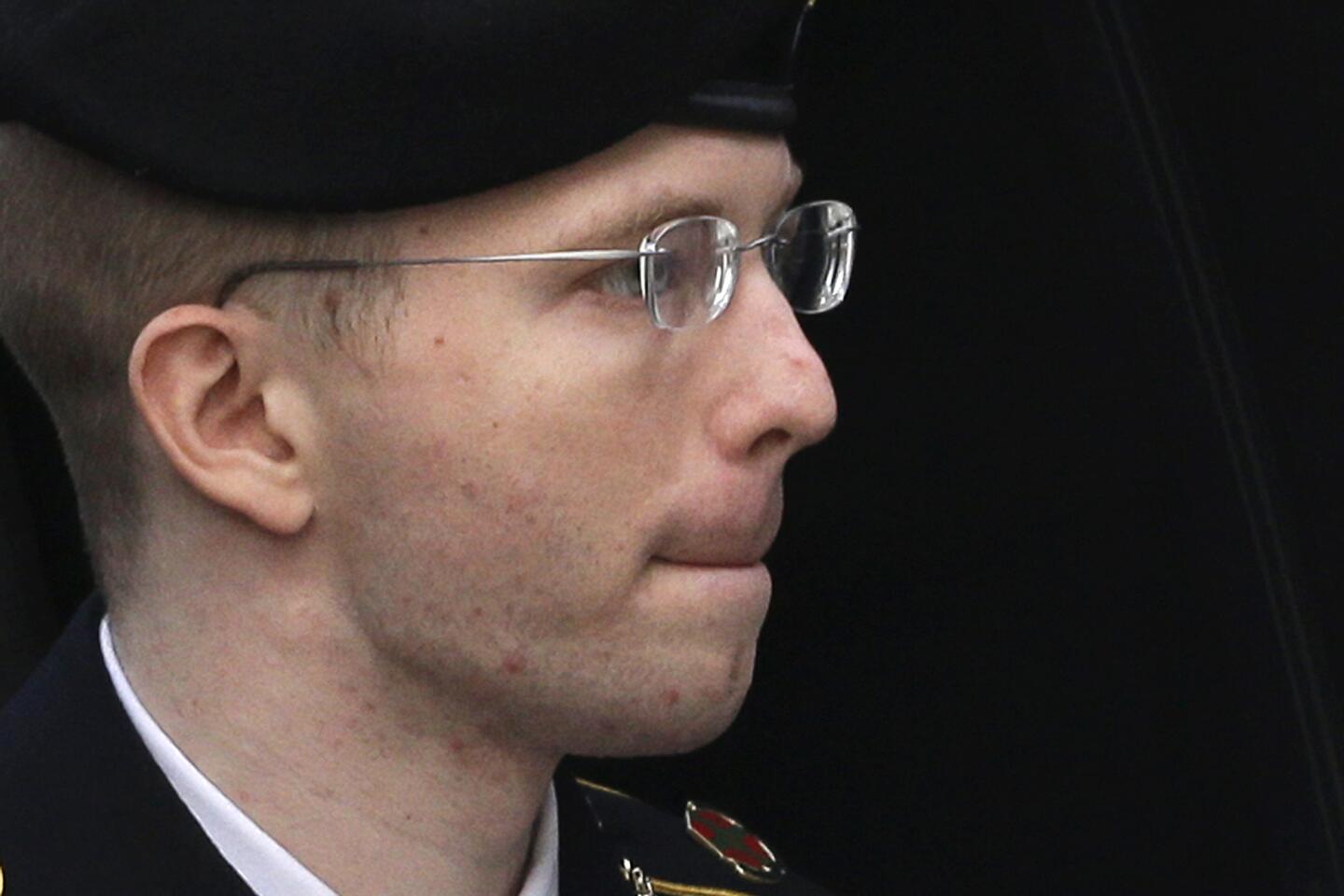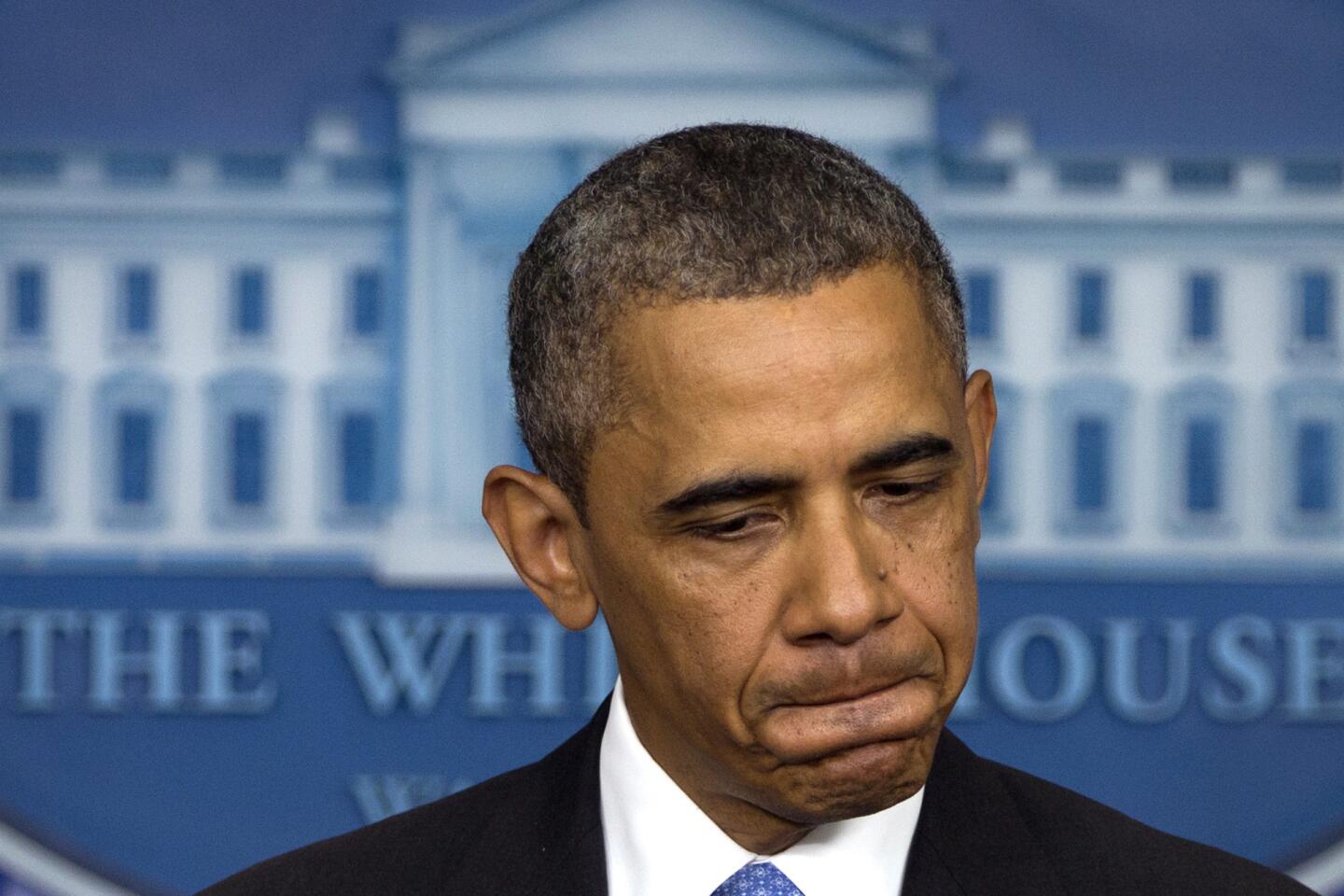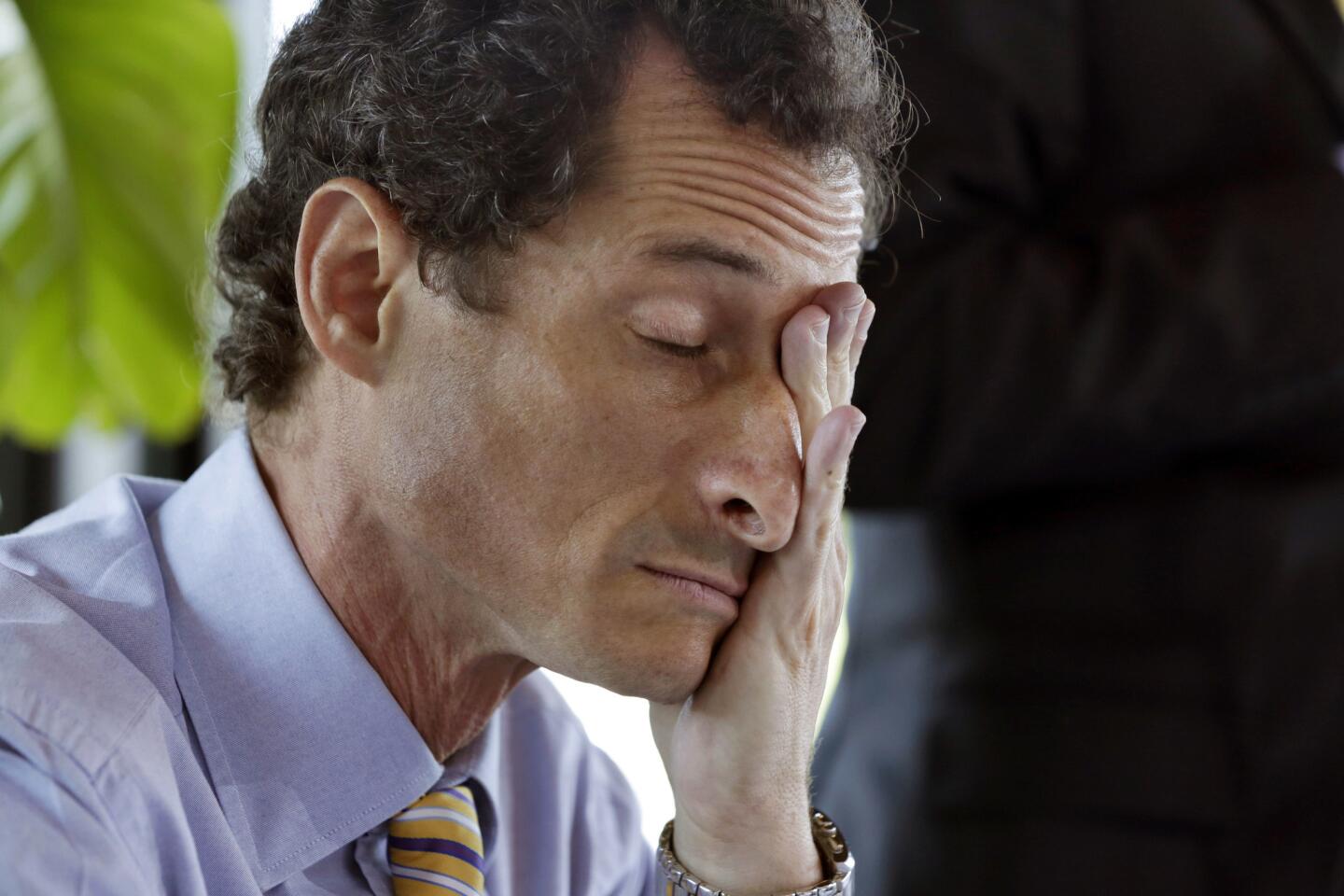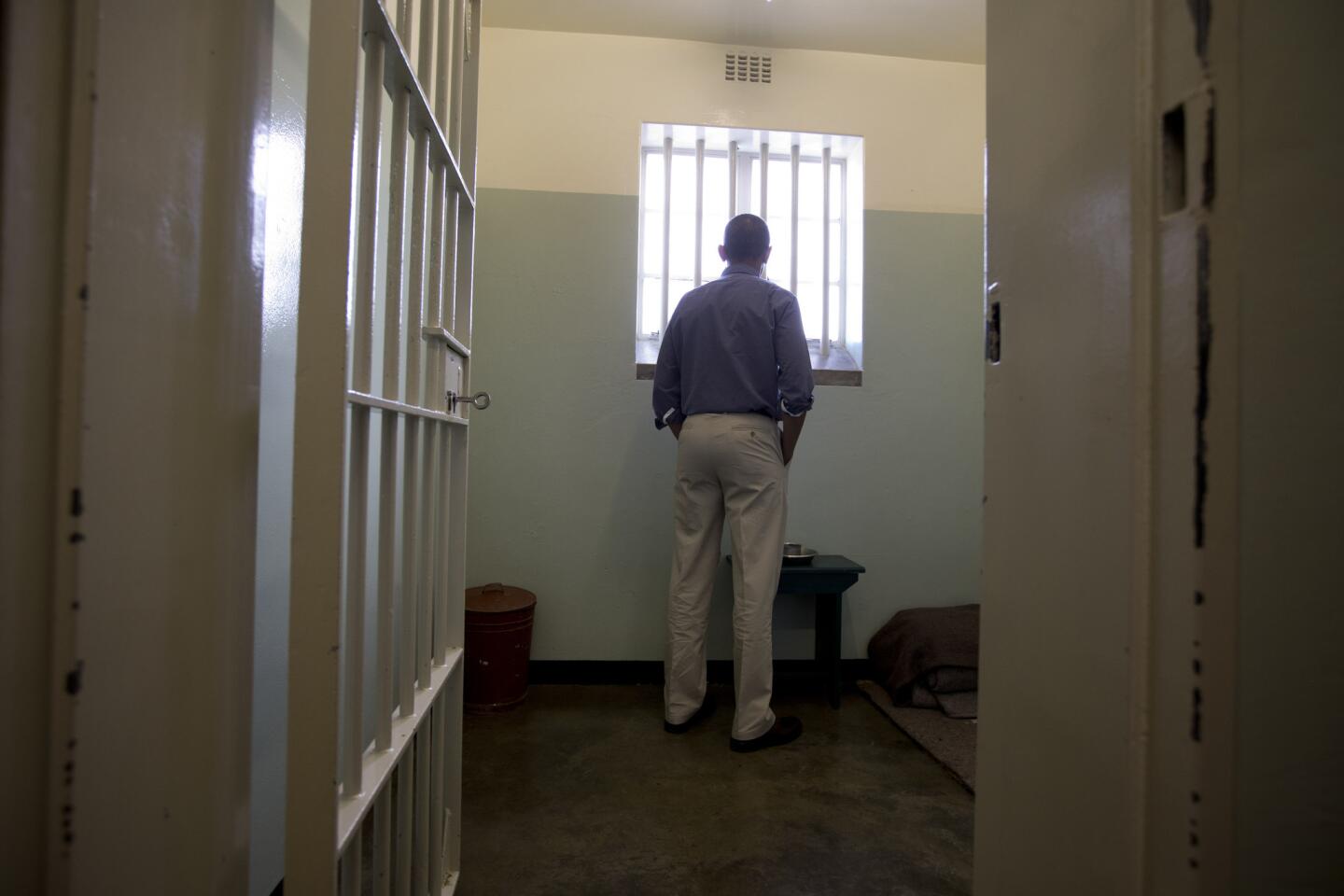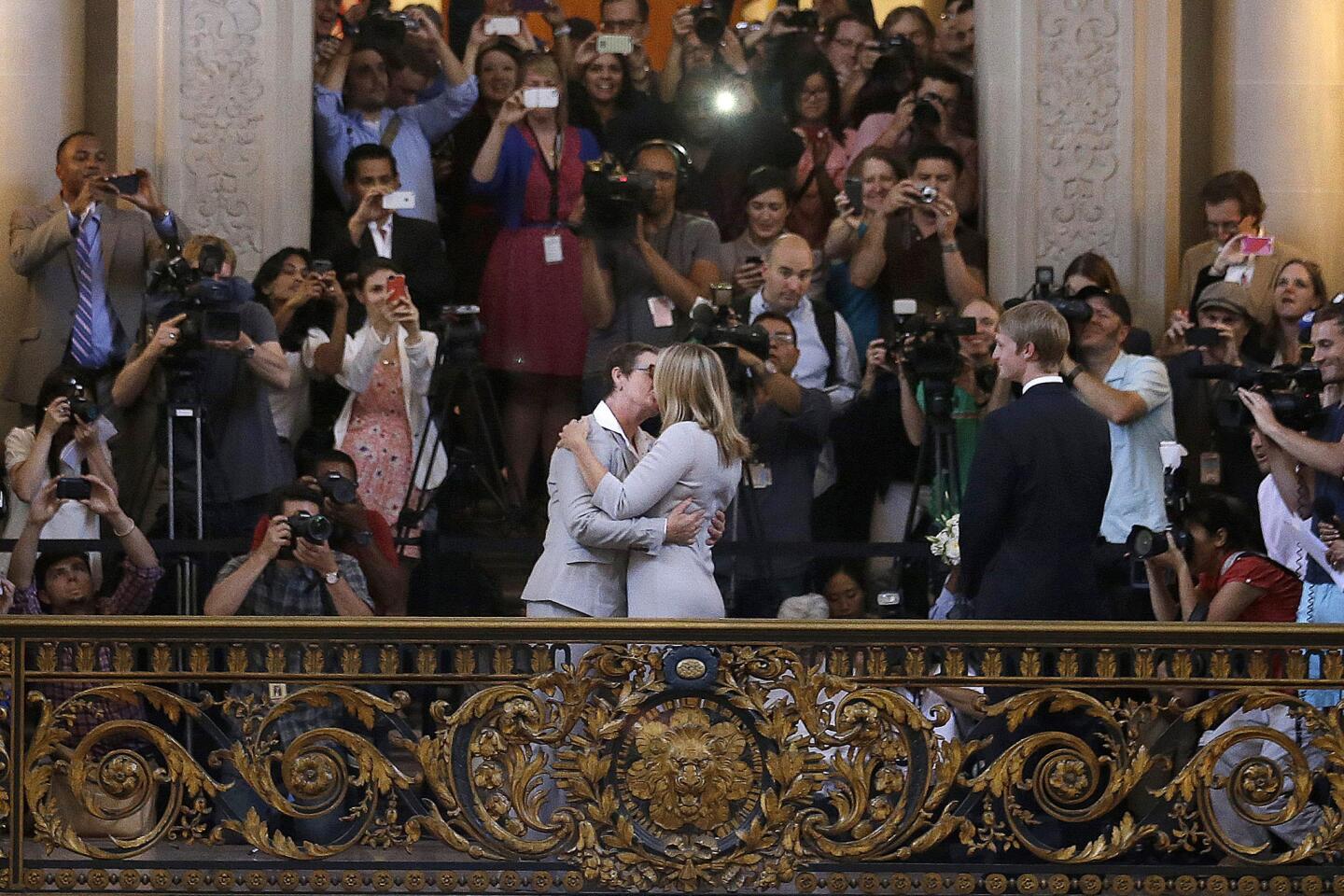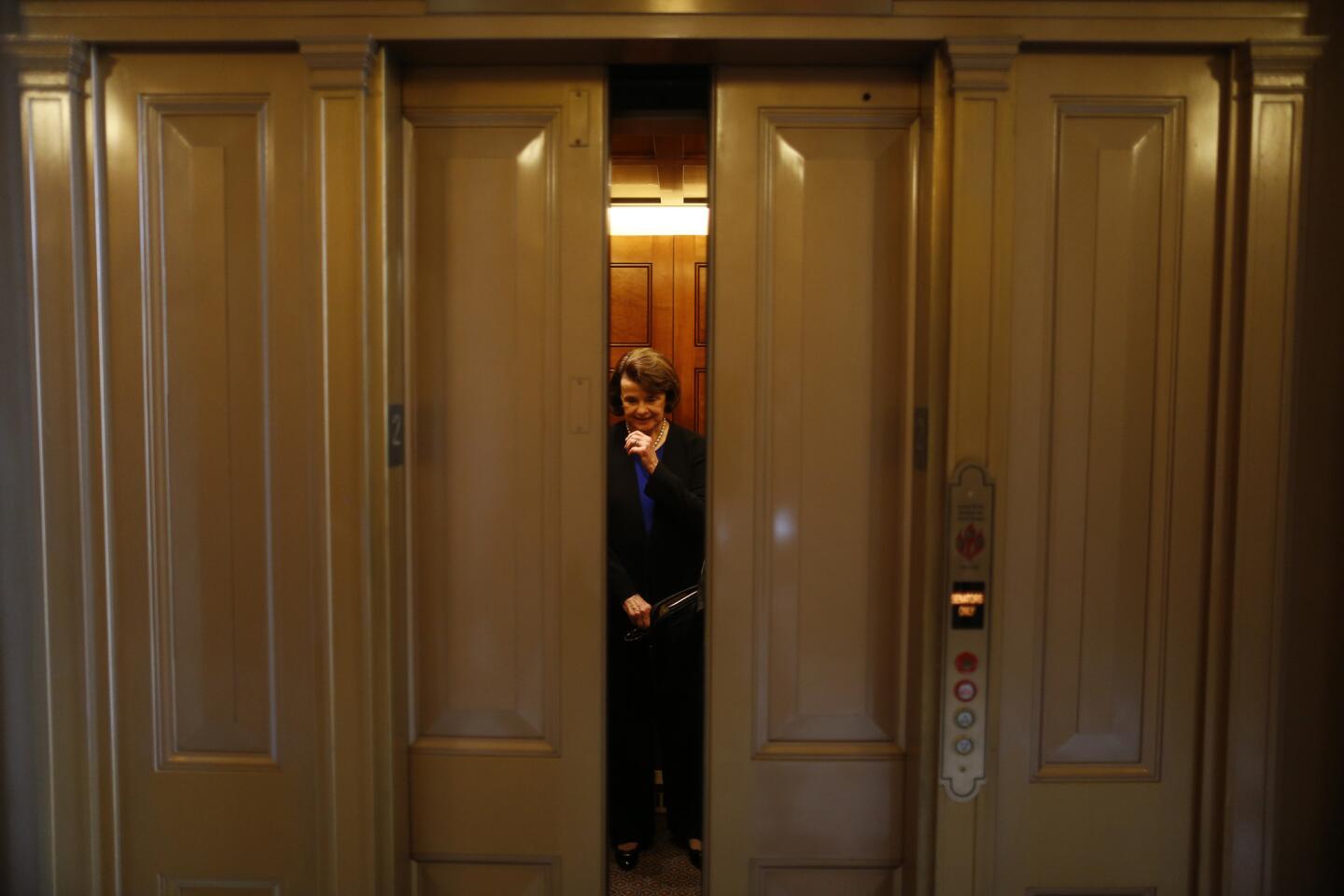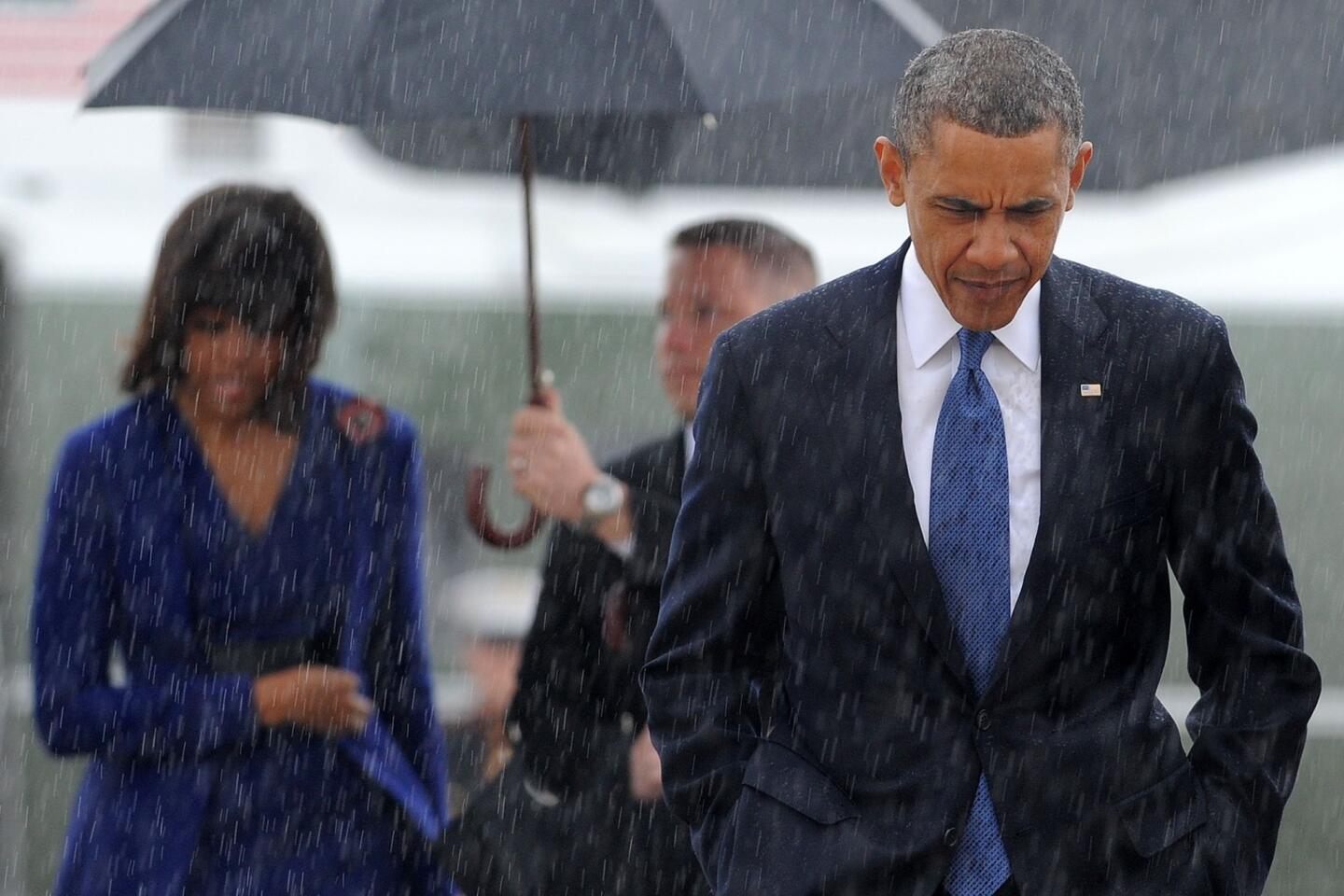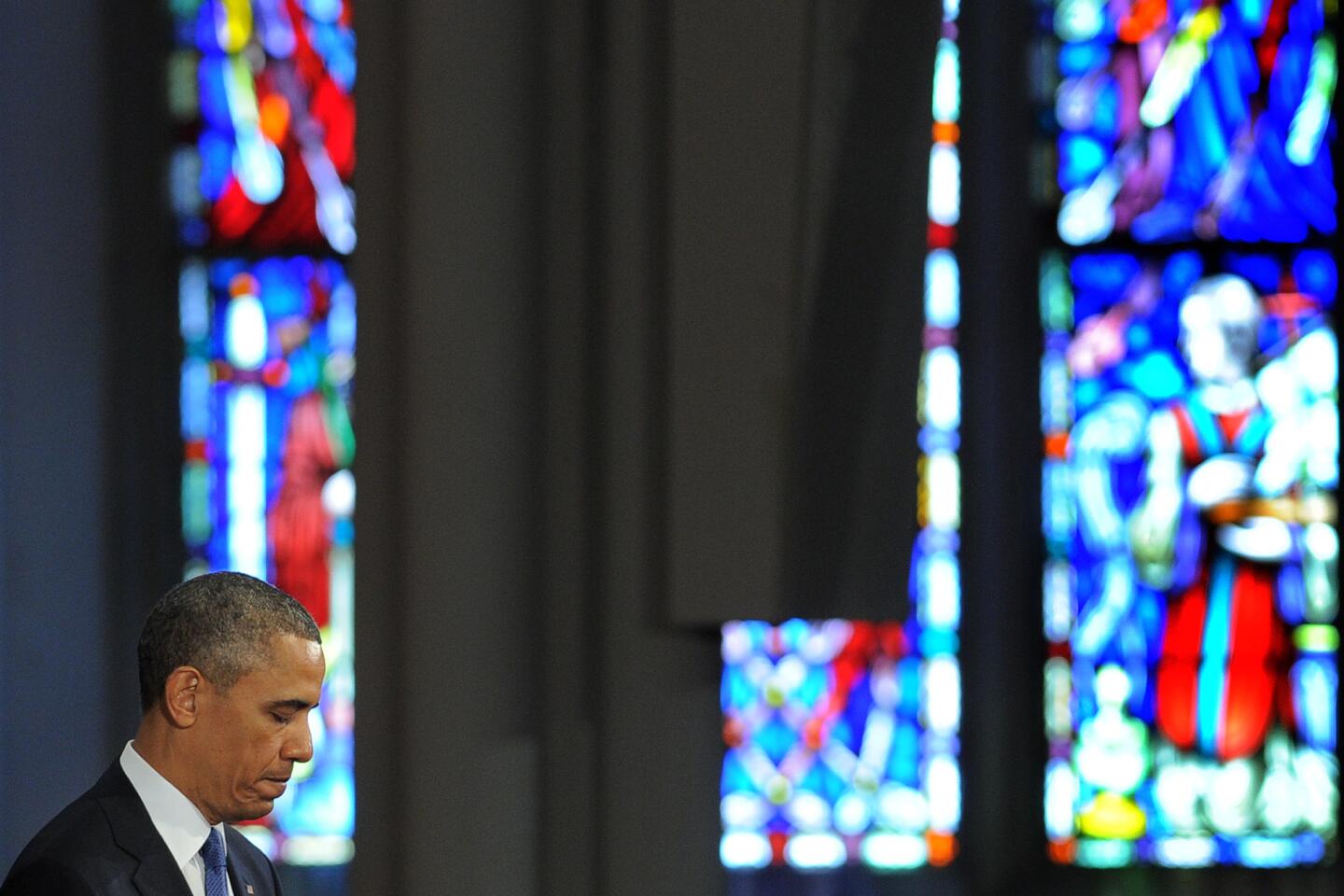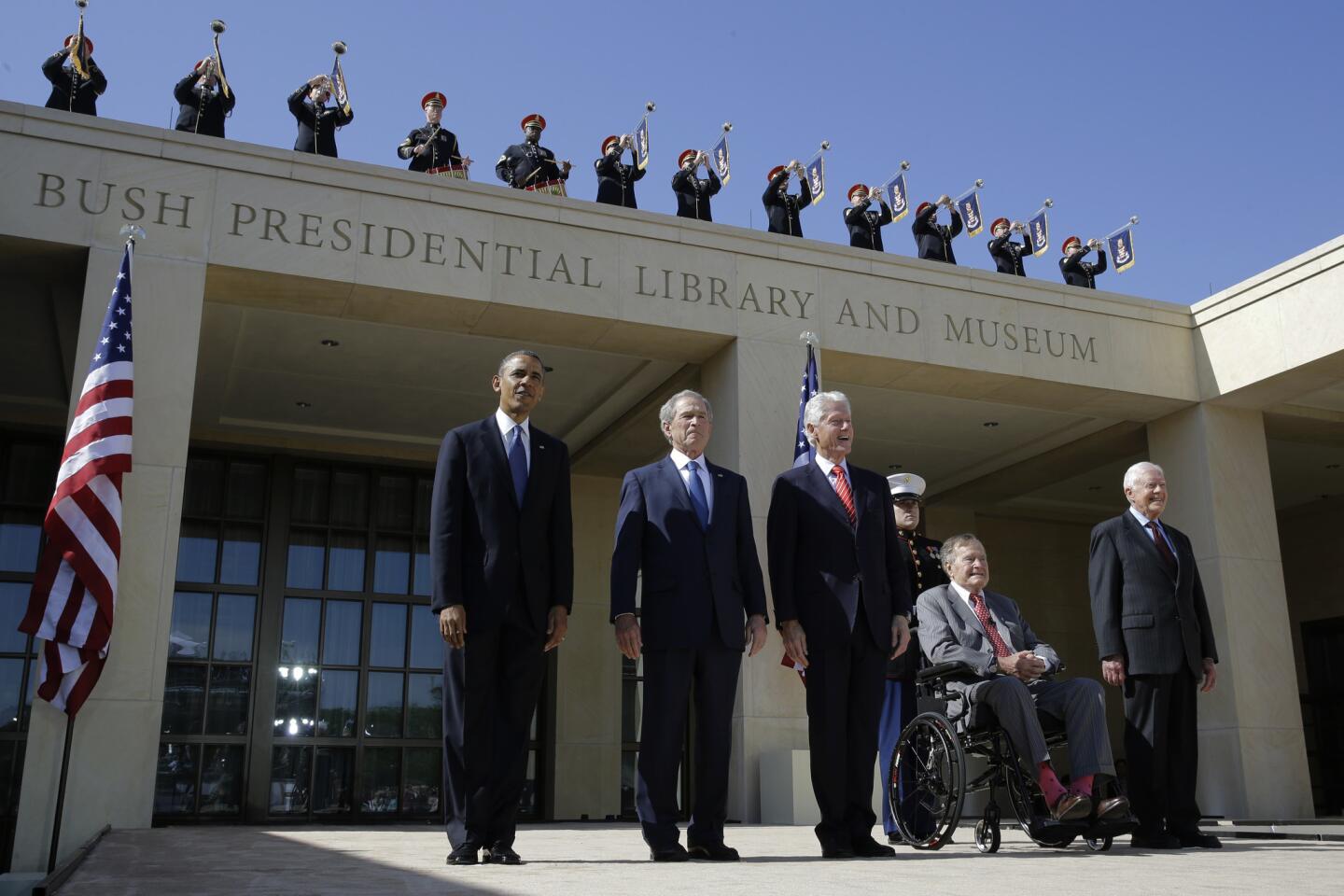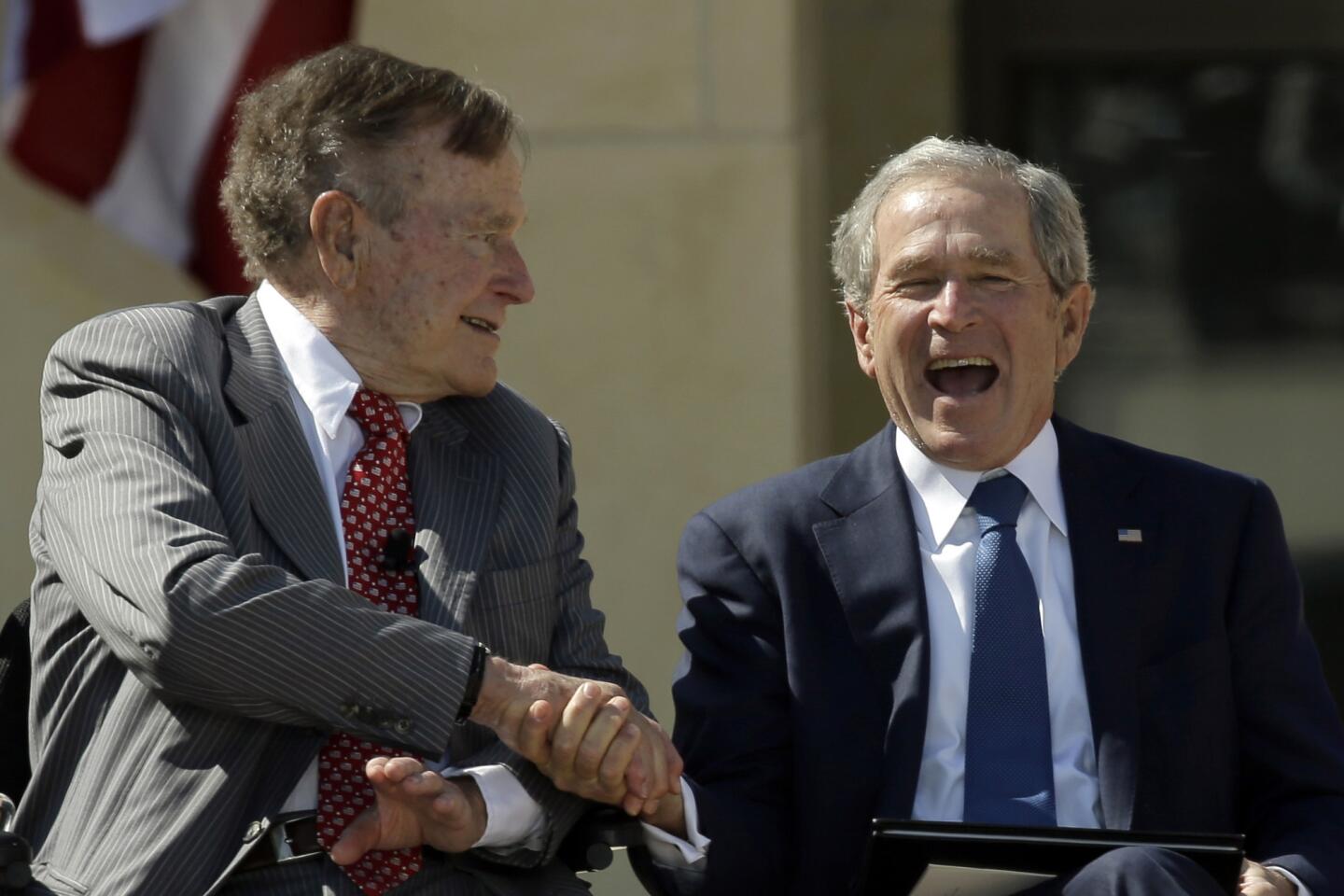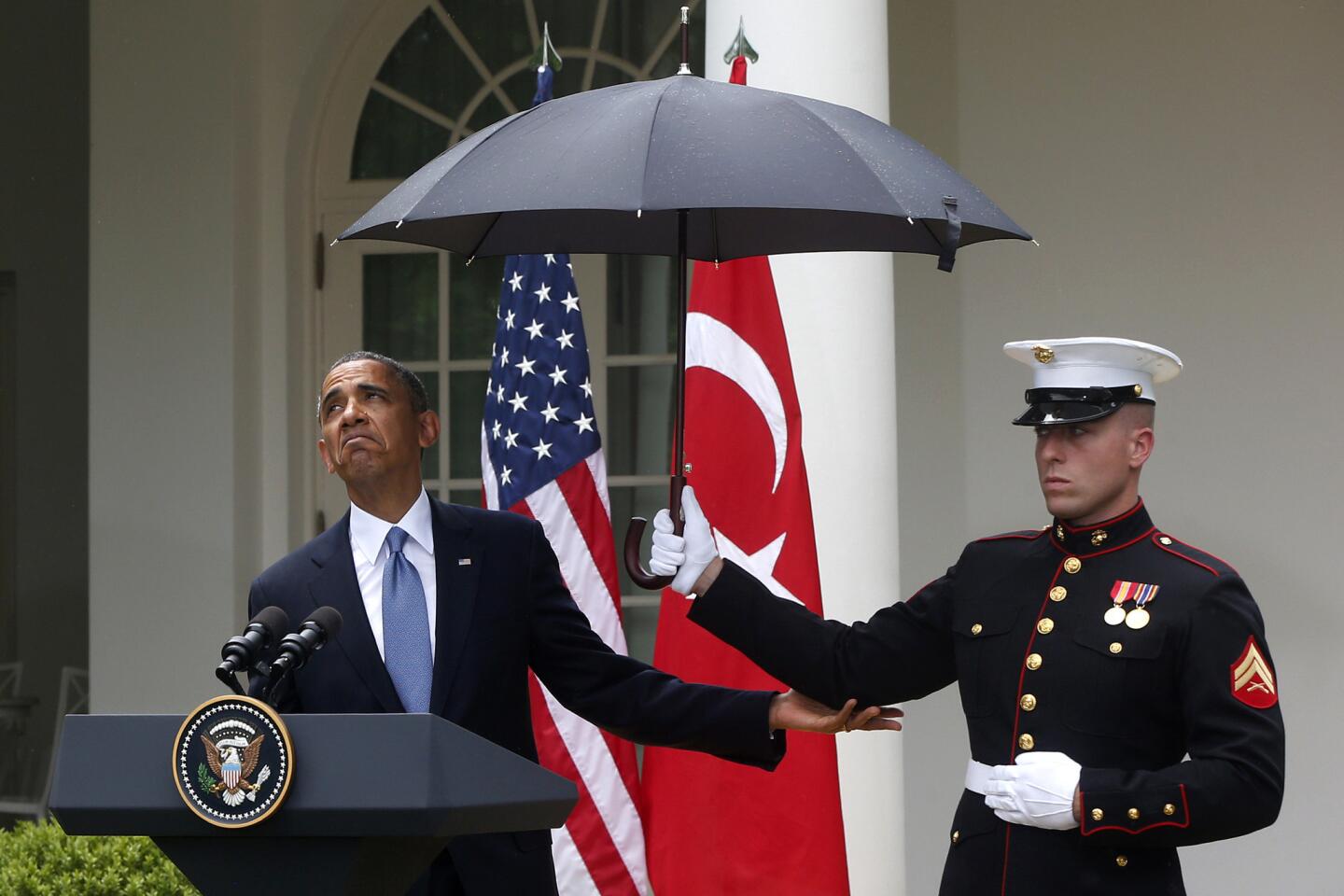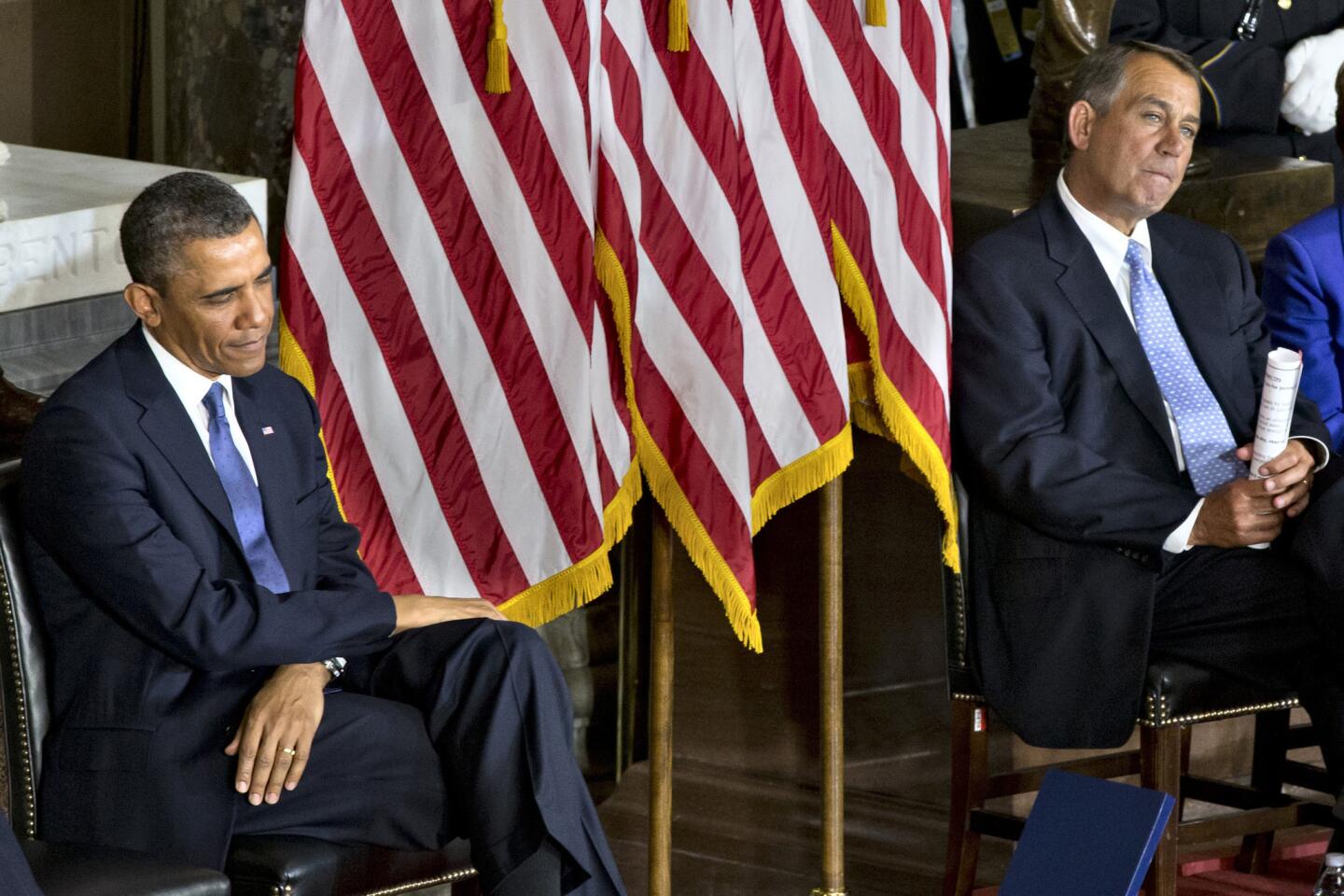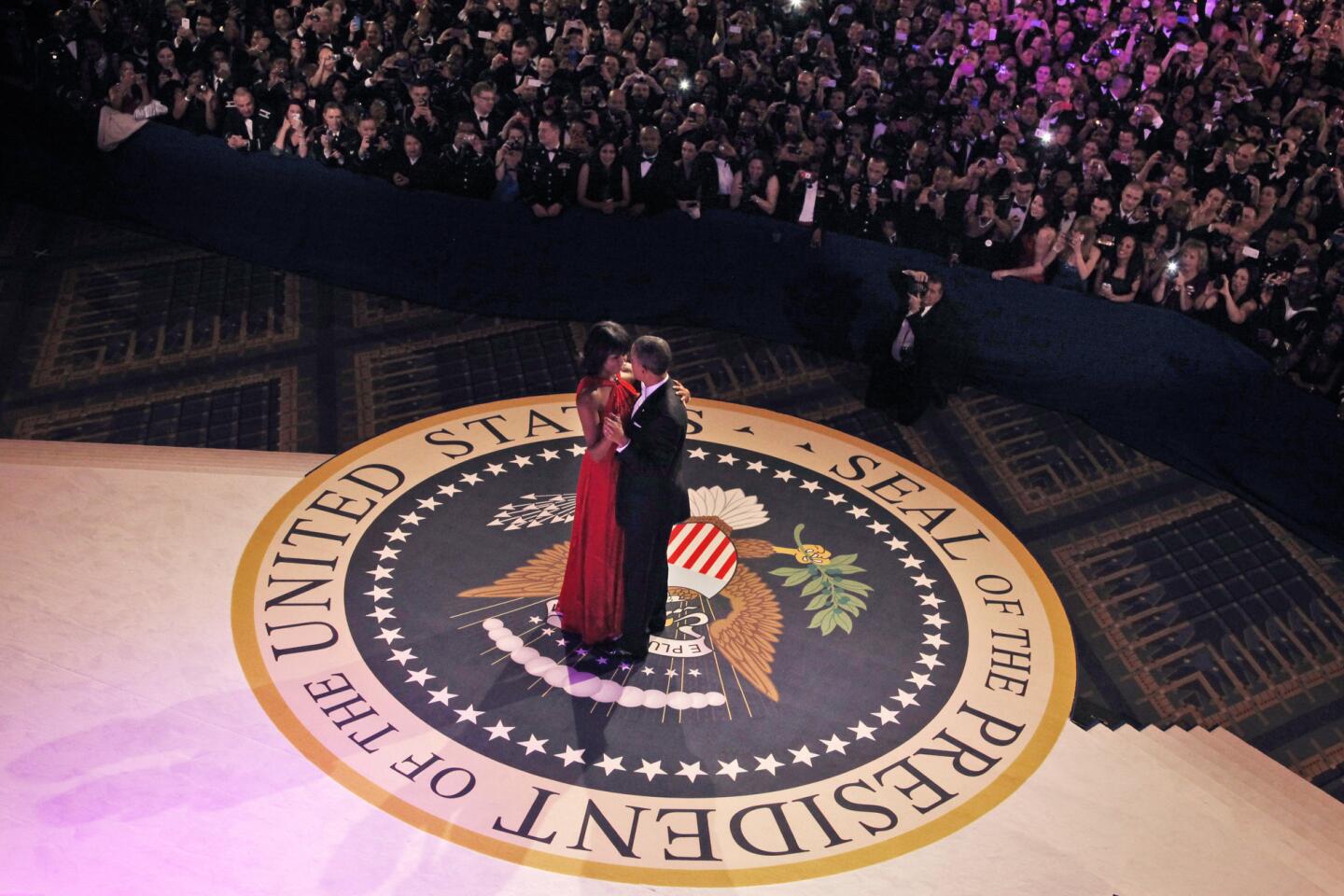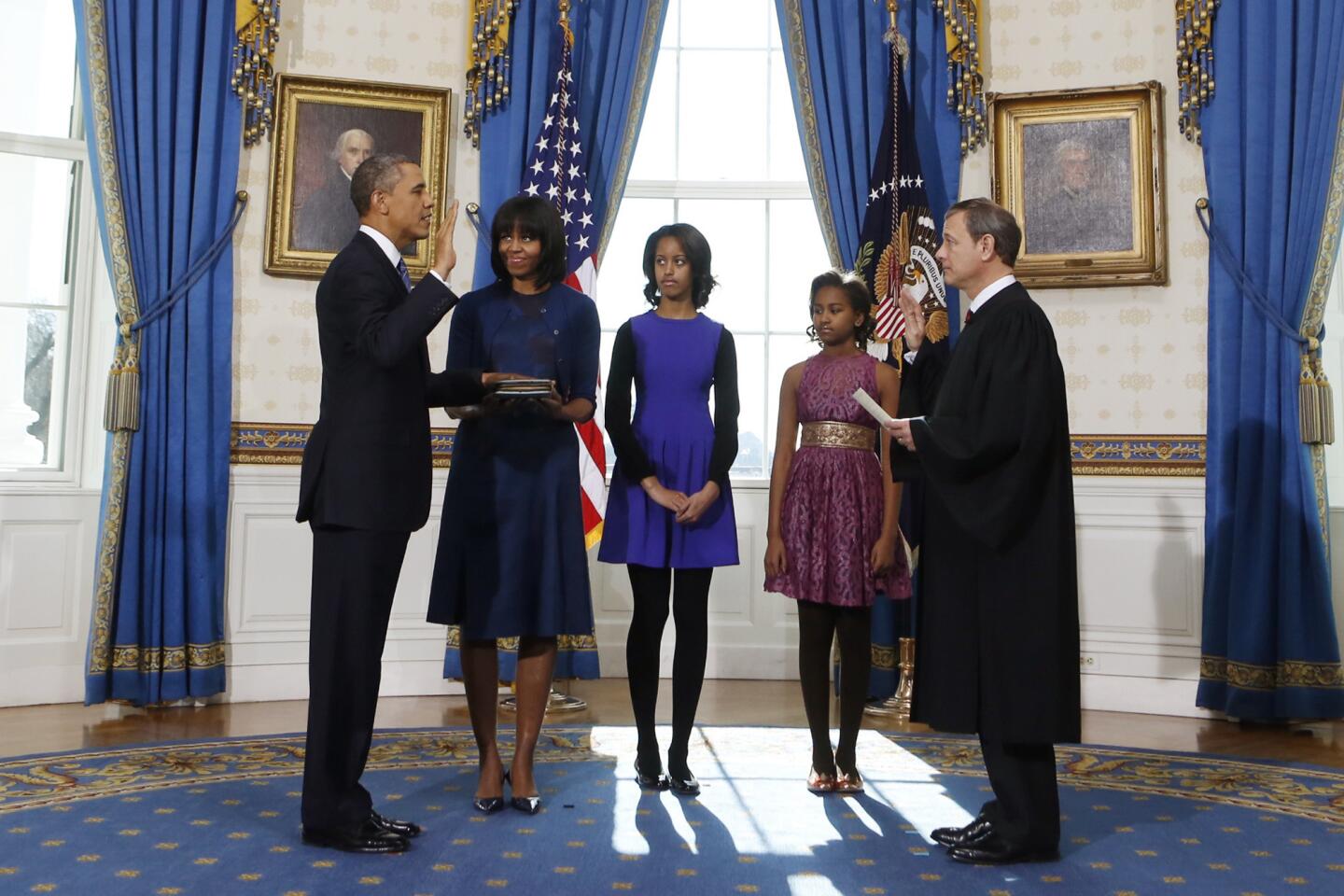Gun control advocates take new look at strategy
- Share via
WASHINGTON — After a year that produced limited results, at best, for their cause, advocates of new gun-safety laws are recalibrating strategy, hoping to find more success at the ballot box and upset the conventional wisdom that opponents of gun control have an iron grip on Washington.
Political groups seeking to counter the influence of the National Rifle Assn. and others in the gun lobby hope to score some victories in next year’s midterm election. But they are setting modest goals. They plan to look for key races in which they can make an impact, but the larger goal is to show lawmakers that the movement behind stronger gun restrictions will have staying power in elections to come.
“There’s been a huge sea change in the way people view the issue, but it’s not going to change overnight,” said Mark Glaze, executive director of Mayors Against Illegal Guns, a group founded by New York Mayor Michael R. Bloomberg. “You start by winning some state victories and some smaller federal victories, and then legislators are reassured.”
It’s unclear whether there really has been the change in public attitudes that Glaze and other gun control advocates claim to sense.
PHOTOS: The debate over gun control
Public opinion surveys showed a sharp increase in support for new gun measures after the school massacre in Newtown, Conn., one year ago Saturday. But within months, that support began to fade. By this fall, pollsters were finding that public opinion had mostly returned to its previous state, with the country closely divided over whether to back new restrictions on guns.
What has changed is greater organization and more money than before on the gun control side and perhaps greater political mobilization by voters supporting additional gun-safety measures. Still, efforts in 2013 to win congressional passage of new gun laws demonstrated the extent of the challenge.
Despite what polls showed to be overwhelming public support for expanding background checks to cover all commercial gun sales, a proposal to do so fell 5 votes shy of the 60 votes needed in the Senate in April.
In the end, the only bill dealing with guns that passed both chambers of Congress was one last week, to simply extend an existing ban on the manufacture of guns such as all-plastic weapons that are capable of evading screening measures.
According to data from the Center for Responsive Politics, which tracks spending on legislative issues, gun control groups spent roughly $1.6 million on the effort. But their efforts were dwarfed by gun rights groups, which spent $12.2 million on federal lobbying.
Some states, including Connecticut, New York and California, passed new restrictions, but a larger number of states responded to campaigns by the NRA and its allies and passed measures to loosen or repeal existing gun laws.
Politically, too, the picture was mixed. In Colorado, where multiple mass shootings have taken place, the passage of new gun laws mobilized gun rights advocates, who successfully recalled two Democratic state legislators. A third resigned rather than face a recall.
But Independence USA, one of a group of gun control organizations backed by Bloomberg, touts its spending in November on key races in Virginia, where Democrats swept all three statewide positions.
Gun control advocates argue that a statewide general election such as the one in Virginia provides a better test than a recall, where turnout is often relatively low.
A strategist involved in Democratic efforts to win House elections said the gun issue could be an asset for their candidates in a handful of key districts. The strategist, granted anonymity to candidly discuss party thinking, pointed to Rep. Mike Coffman (R-Colo.) as a legislator who might be vulnerable because of his opposition to gun-safety measures. Coffman represents a district covering Denver’s eastern suburbs that President Obama carried in 2012.
The gun issue is especially resonant there because the district includes Aurora, scene of the 2012 movie theater shooting, and Littleton, whose Columbine High School suffered a mass shooting in 1999. On Friday, a student at Arapahoe High School, not far from Columbine, shot and critically wounded one student before killing himself.
The Senate election in 2014 offers gun control advocates even fewer opportunities than the House contests. Most Republican incumbents are running in conservative, gun-friendly states.
Vulnerable Democratic incumbents, such as Sens. Mark Begich of Alaska and Mark Pryor of Arkansas, voted against the background check proposal pushed by Sens. Joe Manchin III (D-W.Va.) and Patrick J. Toomey (R-Pa.). But attacking Begich and Pryor for those votes would risk handing the majority in the chamber to the GOP, which is closely aligned with gun rights groups.
Those realities have gun-safety advocates taking a long view, seeing their effort to influence the debate in Washington as a project that could take years.
“Our focus needs to be building up a political infrastructure across the country to match the NRA,” said Sen. Christopher S. Murphy (D-Conn.), one of Congress’ strongest proponents of new gun restrictions. “We simply didn’t have the political firepower to beat them earlier this year.”
This month, former Rep. Gabrielle Giffords (D-Ariz.), who was critically injured by a gunman who targeted her at an outdoor event in 2011, launched a new political action committee. The first recipients of funds from her new Rights and Responsibilities PAC were Manchin and Toomey.
Some lawmakers who have backed sweeping packages of gun laws are now more open to pursuing smaller, potentially more attainable victories on related issues such as mental health. In the past, some involved in the push for gun restrictions have opposed dealing with mental health issues separately. They feared that taking up the issues one by one would reduce the chances of winning measures such as expanded background checks, which they believe would prevent a larger number of gun crimes.
Murphy said he was still consulting with Republicans on the idea of keeping guns away from people with mental problems, but was uncertain about its legislative prospects.
“The horror of this is that every time there’s a new high-profile shooting somewhere around the country, it prompts another round of conversations on the floor of the Senate,” he said. “I wish we were having those conversations for better reasons.”
More to Read
Sign up for Essential California
The most important California stories and recommendations in your inbox every morning.
You may occasionally receive promotional content from the Los Angeles Times.
